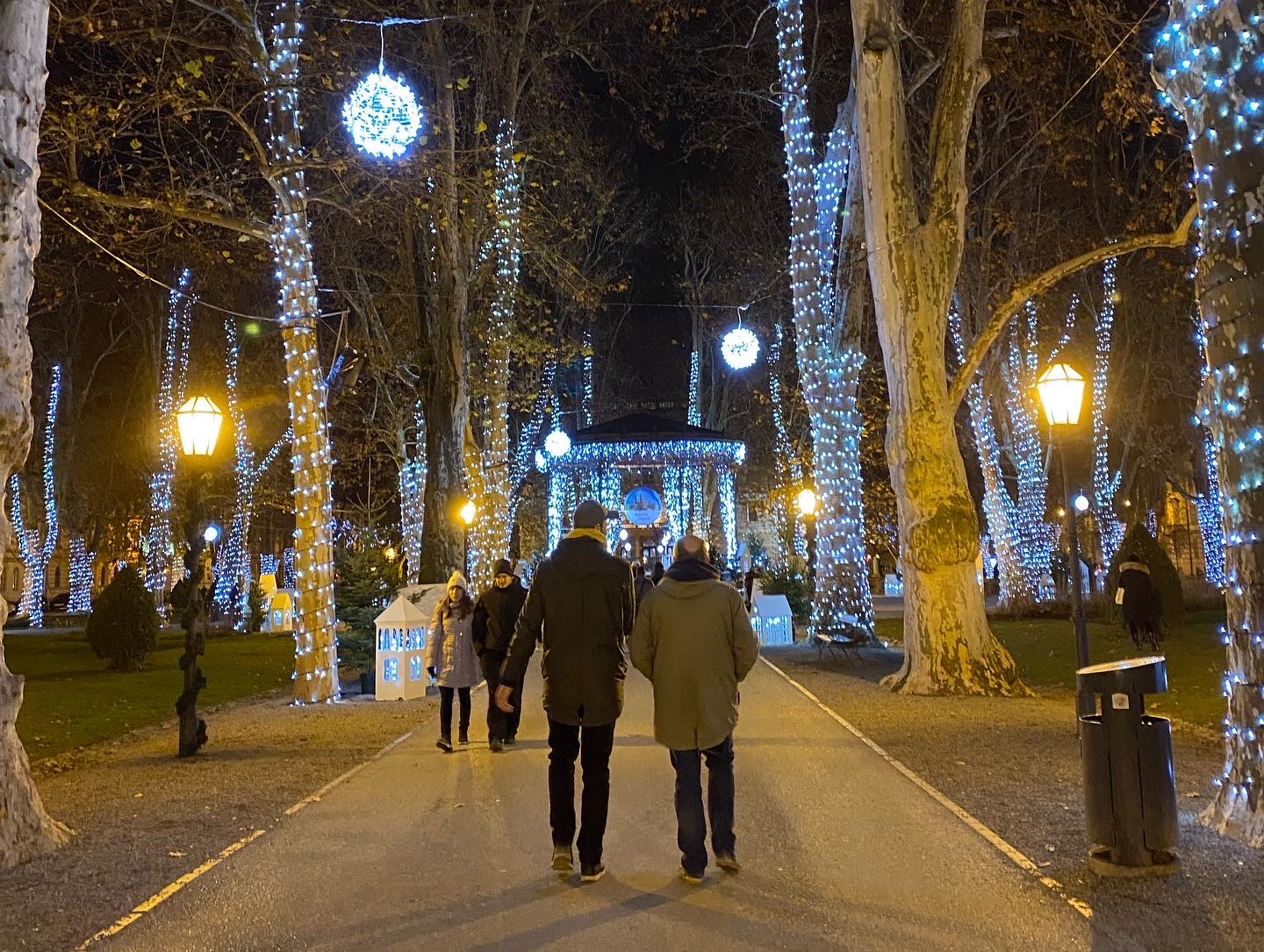7-Year Itch or Continued Bliss? A Reflection on 7 Years in Split
June 24, 2022 - 7-year-itch or continued bliss? A reflection on 7 years in Split by TCN's Daniela Rogulj.
June 24th marks my Croatia anniversary. It is officially the longest place I have lived outside the small town of Fallbrook, California - the so-called 'avocado capital of the world' and an agricultural oasis an hour north of San Diego, where I was born and raised. San Francisco took the cake before Split, where I spent six years attending university and launching myself as a fresh-faced 21-year-old into the fast-paced startup world. I had no idea then that I would end up in Croatia, let alone Europe, at 24. California was my home. The state that made me. But Croatia has transformed me into who I am today.
I know I've said this many times, and anyone who knows me or has followed my journey here knows that I moved to Split accidentally. After spending six months in London, I was desperate to finalize my Croatian citizenship to either stay in London or move anywhere else in Europe (like Berlin). During that time, my parents moved to Split to retire, and one month later, I visited them to sort out citizenship paperwork and enjoy the same Croatian summer I had since I was a little girl.
I arrived on June 24, 2015. It was the summer that changed my perception of Split. It was no longer the port city I had remembered. It had transformed from the transport hub we would visit as a family on the way to Hvar or a short stint for a Hajduk match. Split had come to life in a different light in 2015. There was a new renaissance. Bustling restaurants and bars. Expats. And locals that I still call friends.
After the season's changed and my citizenship was approved, I was convinced to stay in Split a little longer. It wasn't easy to find work here at first, and it took almost a year after I arrived to find the gig that changed my course in Croatia. My professional work experience was in marketing and communications, first as a sales & marketing intern at a San Francisco startup before taking on a role as the community manager of a new photo/video app rivaling Instagram, then ultimately co-founding an app in e-commerce. What in the world could I do with that in Split? Was tech even a thing here? Did a startup environment even exist?
I graduated from university with a degree in political science, which I completed to become a political journalist. Otherwise, I've always been right-brained, favoring creativity, imagination, and arts. I knew I was a good writer. I knew what I was capable of in terms of marketing. But I also knew my work in hospitality was limited to managing a cupcake shop while studying at university. I didn't want to work a seasonal hospitality job because it was the norm. I was motivated and hungry to start something but knew I needed to start somewhere first.
My first 'job' in Split was working alongside a booking agent known for his roster of big bands like TBF and up-and-coming artists like Sara Renar. With my dad's background in the music industry as a travel agent for entertainment, this felt like a good fit. It was a good insight into how things worked in Croatia and how coffee meetings were king, but it was only the beginning.
A few months later, my mom sent me a Facebook post about how Total Split of the Total Croatia News brand was looking for a new writer. Well, this seemed perfect, but I hadn't written blogs in a few years, nor did I know Split inside out yet. I applied, anyhow. I didn't hear anything for a few weeks and assumed that was the end. In the meantime, I had to take a last-minute trip back to the States, which would keep me in California for three weeks. I received an email from TCN the second I landed at LAX. The TCN team was still eager to continue with my application process, and I met with Paul Bradbury the day after I arrived back in Split. I started working with TCN the day after that and celebrated my 6th anniversary with the company last month, which is also officially the longest time I've spent employed at a single place.
My role with TCN has evolved over the years, from writing for Total Split and Total Inland Dalmatia to covering travel news and lifestyle events. Though it really took form when I took over as Sports Editor in 2017, especially after a former colleague told me I would never see a press pass for Croatia national team games. As an avid football player for most of my life, a coach's daughter, and a FIFA referee's granddaughter, I wasn't going to let anyone get in the way of my love for Croatian football. Since then, I've been an accredited journalist at nearly all Croatia national team matches, Hajduk matches, and traveled around Europe for Europa League, UEFA Nations League, and EURO 2020. I recorded 20+ international radio interviews during the 2018 World Cup and even became the Croatian correspondent for the largest sports radio station in the world. Today I am not only the Sports Editor of Total Croatia News but the COO. Did this all stem from a local telling me, "I will never get X in Croatia"? It was certainly part of it. Do I think I would have achieved the same success in the US? I'm not sure. But this also shows that if you put your mind to something, you can achieve it, and it feels even better when you do it in Croatia.
Always running into people that needed my native English flair for various tourism projects, I also launched a copywriting business in 2017, which has grown to more clients than I can handle by myself. It is a niche, but it is needed, and the increasing demand for storytelling in Croatian tourism has undoubtedly helped. I'm busier than ever, and my work doesn't stop when the seasons change. I am eternally grateful to everyone that has given me an opportunity here, told me I couldn't, or motivated me to do more. I work from home, have flexible hours (which, let's be honest, is 7 am to 11 pm every day), and can afford an apartment I love, on my own, without any help from the money I made in America (that was all spent in 2015). I am proud of what I have achieved here but am even more appreciative of what Croatia has taught me about myself.
So, after 7 years in Croatia, what have I learned?
Paul Bradbury is famous for saying, "don't expect to change Dalmatia but expect it to change you." And it has.
To start - has it aged me? Tremendously, because I've never worked harder in my life. But I am thankful that my continued work ethic helped launch a career here that I love, that is my own, and that gave me a world of opportunities I never imagined, making the increasingly appearing frown lines a bit easier to look at every morning.
I've learned to stop drawing comparisons between Croatia and the US because you can't. Croatia has what the US doesn't - both good and bad. While I likely work just as much as I would have in the States, er, maybe more, I'm happier. I am not following the rat race of the working world in America. I wake up to the Adriatic Sea every morning. And I feel at peace. The anxieties that come with living in America alone aren't worth the higher salaries. And I make sure to tell every Uber driver that questions why I would swap California for Split about how good we have it here and how the grass isn't always greener on the other side (political circus and bureaucracy aside).
I remember being so worried about making new friends in Split when I arrived, but the truth is, it was easier than I thought - and much more genuine than some of the relationships I had in California. I quickly found my pack here, and while it has evolved over the years, the foundation has remained the same. It's not hard to surround yourself with equally driven people. Most of my friends are business owners, many foreigners, and incredible locals doing amazing things. I've learned that the community in Split is beyond special, but you must be careful who you choose to be a part of yours. With that said, I still maintain the importance of staying in your bubble and only letting those you trust in. You never know when someone's pride may get in the way. And you know how proud some Croatians can be.
I've only recently learned that setting boundaries are essential. Once you put yourself out there as a yes woman, people expect that of you, and you hold those standards for yourself. Maybe part of me needed to do that for the last seven years to finally be in the place of comfort I am now and gain that respect, but people can also easily take advantage of your eagerness, and while they're getting what they want - you're the one suffering. Transparency and communication are key in all work here because miscommunication or misunderstandings often happen. It's important to work with people you wholly trust and build those relationships as they will ultimately bring more.
And back to "don't expect to change Dalmatia but expect it to change you." Dalmatia - is a beast. The best of the best and the worst of the worst at times. Overall, you learn to adapt, become softer and tougher simultaneously, and learn how to navigate what works and what doesn't. You can push for something for years without seeing the light of day, or something can fall into your lap. You never really know what will take off and won't, which can be disheartening. But that doesn't mean you should give up if you believe in something.
Also, it's okay to celebrate your success. I know that's sometimes 'taboo' in Croatia, but we should all pat ourselves on the back for what we have achieved here, as even the smallest victories can make the biggest impact.
In the last year alone, my experiences in Split have shaken my core. I've had my heart broken, my world rattled, and I thought about leaving Croatia for good. But I always came back to the same thing - could I really leave this place? The place that has given me everything? I couldn't. And I wouldn't change the passion and pride of Split people (or the frustrations) for anything in the world.
Seven years in Split and at least another seven more - here's to the place that changed me for the better.
For more, check out our dedicated lifestyle section.
5+ Years Living in Split: Expat Rainee Wang from Xi’an, China
May 26, 2022 - In our new TCN series, we uncover the lives of expats that have spent over 5 years living in Split. Next up, meet Rainee Wang from Xi’an, China!
Two idyllic weeks on a Croatian beach is very different from the realities of full-time living. So what is it really like to live in Croatia as an expat? In a new series on TCN, we meet expats who have lived here for 5 years or more, to find out from them the good, the bad, and the ugly of 12-month living in Croatia. Next up, Rainee Wang from Xi’an, China!
1. Tell us firstly how you came to Croatia? What motivated you to choose this slice of paradise and how long have you now been here?
I was born and raised in central China. After college graduation, I moved to Europe to continue my study in hospitality, and years working in Holland, the US, China, India, and Montenegro.
The first time I came to Croatia was in 2006 and I visited Dubrovnik, Split, and Zagreb. I was amazed by the beauty of Croatia. These 3 places are all special in their way. I moved here at the end of 2013. We decided to start our own business here in Split. It has been almost 9 years now.
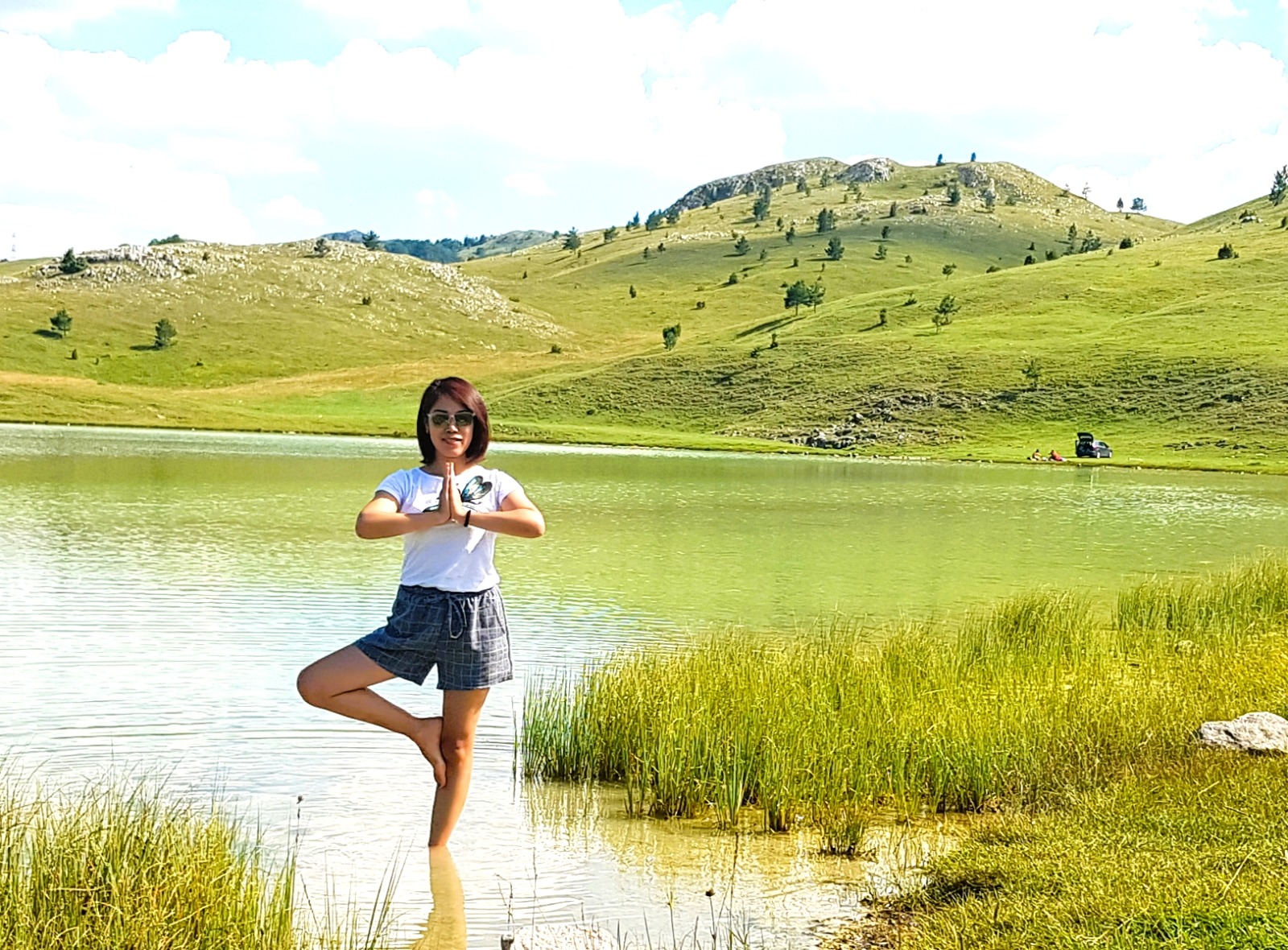
2. Looking back, what were your perceptions and expectations?
There are some similarities between Croatian culture and Chinese culture. We are both very family-oriented cultures. Family is more important than oneself. Hospitality is a very important part of the social stand. When I visit a Croatian family, the warm welcome I get and the way they take care of me, really reminds me of home, with endless food and drinks, and they won’t let you leave the house without a satisfied stomach. But on the other hand, there are big differences in the business world. In Croatia, especially in Dalmatia, it is very lay-back. This kind of “po lako” culture doesn't exist in the Chinese business world. It made me very uncomfortable at the beginning. I felt like I was living in the last century. I was sure “po lako” culture would never succeed in business.
3. After 9 years here, how have those perceptions changed. Do you now view Croatia differently?
After nine years of living in Croatia, I have changed a lot. I'm used to “po lako” culture. I remember complaining “Nothing is finished on time!” “Look at these Croatians, they just drink coffee all day long.” “Nothing is more important than a coffee break” But now, I am almost one of them. Of course, I cannot change my Chinese nature completely. However, I started to understand why it is this way, and even see the beauty of it. Being slow is not just working slowly. It is 'stop for a moment and enjoy'. It is taking time for yourself. Which I think is the true luxury in the modern world.
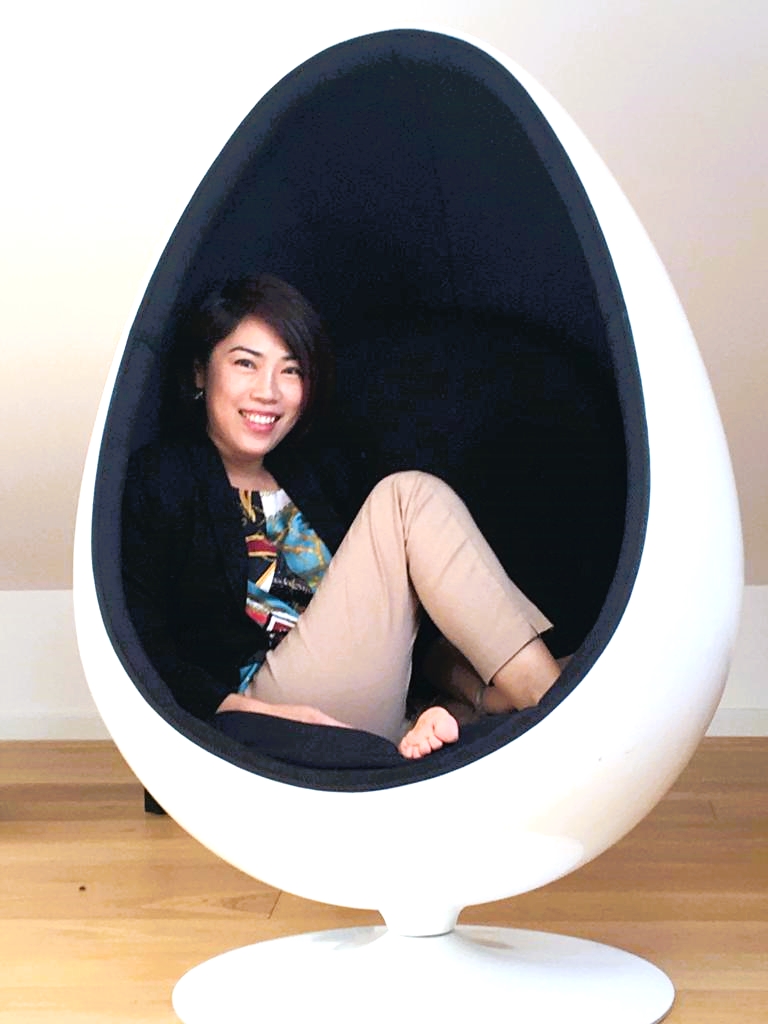
4. After your 9 years, the 3 things you love most about Croatia?
When people ask me about Croatia, the first thing that comes to my mind is the beautiful climate, warm people, and delicious food. I think there is no need to say anything about the climate. Nature can speak for itself. People are very warm and kind, I was always treated nicely as a foreigner. However, I have to say it is very difficult to get into the local circle in Split. It seems they don’t like to make friends with outsiders. But it is not true, once you find local friends, they take you in, and treat you like family. The food is delicious. I guess in China food production becomes industrialized mass production. It is hard to find a fresh market in big cities. The taste of fruit and vegetables becomes artificial. That is why I was so surprised to taste “real” vegetables, fruit, and meat. The flavor is incomparable.
5. And the 3 things you would like to change.
Well, I guess the first thing is always the bureaucracy like everyone else would mention. “Jedan papir fali” is true. There is always one paper missing. I have never finished anything with just one visit to the government building. But after nine years of dealing with MUP, I have developed my way of communicating with them. Since Covid started, when most of the communication went online, it is much more efficient.
I mentioned earlier that I started to enjoy the “po lako” culture. But sometimes. I still miss the real business world when everything is organized and punctual. I miss the procedures (I cannot believe I am saying this).
6. Given your experiences, what advice would you give to any would-be expat thinking of making the move?
I'm not a person who gives advice, because everybody has a different lifestyle and different cultural background. But for Chinese people who want to move to Croatia, I would suggest being patient. Things will be done. But it just needs more time. One minute of Croatian time is not one minute of Chinese time. We always need to find a way around and use the connections we have. If you don’t have one, build your connections.
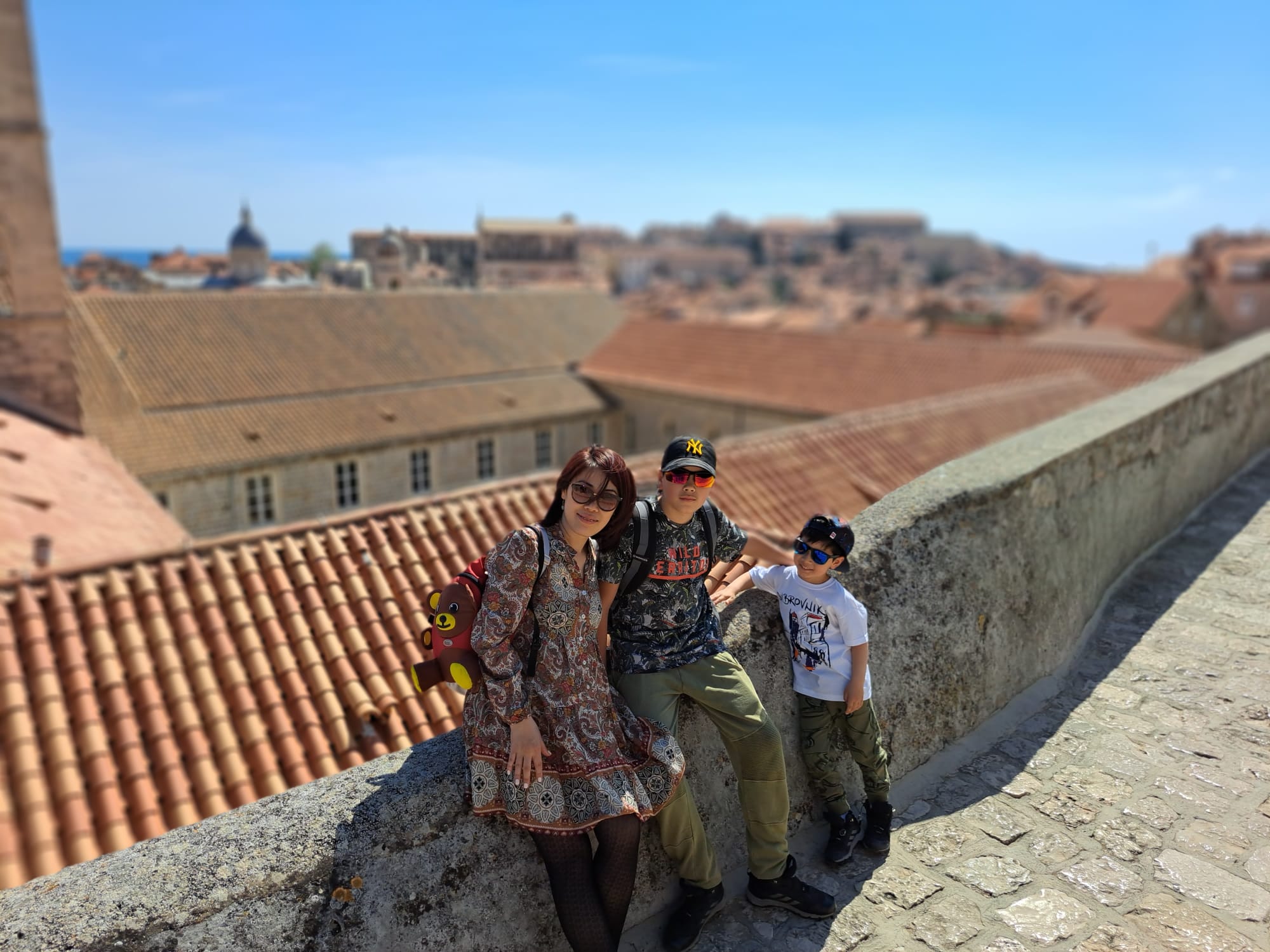 7. The most beautiful place in Croatia, and why?
7. The most beautiful place in Croatia, and why?
I think there is no most beautiful place, only a more beautiful place. Each place is unique. My first visit to Croatia was to Dubrovnik, I thought this is the most beautiful place in Croatia, but when I arrived in Plitvice I felt a different beauty. The islands are all beautiful in their own way. For me, the most beautiful place in Croatia is the island of Vis, the small yet authentic little town with amazing nature and rich history behind it. However, as I said before, Vis is my favorite place in Croatia for now, maybe in the future, I will have more discoveries.
8. Your favourite moment of your time in Croatia?
I have had many memorable moments in Croatia. The favorite ones are always the time spent with my favorite people. Weddings for sure. I have been to a few weddings in different locations. I enjoyed them all, the stunning view, and the cheerful people. The Christmas market on the Riva, back in 2015, and 2016 was special. I was working in one of the “kućica” on the Riva. In the cold winter, the atmosphere of the whole place was warm. Now they have moved the Christmas market to Đardin.
Are you an expat who would like to be featured in this series? If yes, please contact This email address is being protected from spambots. You need JavaScript enabled to view it. Subject Expat
For more, make sure to check out our dedicated lifestyle section.
5+ Years Living in Split: Expat Kimmy Chan from Hong Kong
May 19, 2022 - In our new TCN series, we uncover the lives of expats that have spent over 5 years living in Split. Next up, meet Kimmy Chan from Hong Kong!
Two idyllic weeks on a Croatian beach is very different from the realities of full-time living. So what is it really like to live in Croatia as an expat? In a new series on TCN, we meet expats who have lived here for 5 years or more, to find out from them the good, the bad, and the ugly of 12-month living in Croatia. Next up, Kimmy Chan from Hong Kong!
1. Tell us firstly how you came to Croatia? What motivated you to choose this slice of paradise and how long have you now been here?
I am Kimmy Chan, from Hong Kong, and have been living in Split for 9 years. I received my Croatian citizenship last year. I came to Croatia in 2007 because of an internship through an international student exchange program. Back then I had to choose between Croatia, Poland, the Czech Republic, and Ukraine, and honestly, I had no idea what Croatia is like, so I Googled it and the first photo I saw was the iconic golden triangle of the Zlatni Rat Beach on Brač Island. “It’s BEAUTIFUL and I have to see it!” I said to myself and that’s how I started my story in Croatia. During the internship, I met the love of my life through a friend and we had a long-distance relationship for 5 years. In 2012, I relocated to Split from Hong Kong and got married the year after. Now I have 2 daughters and 2 bunnies
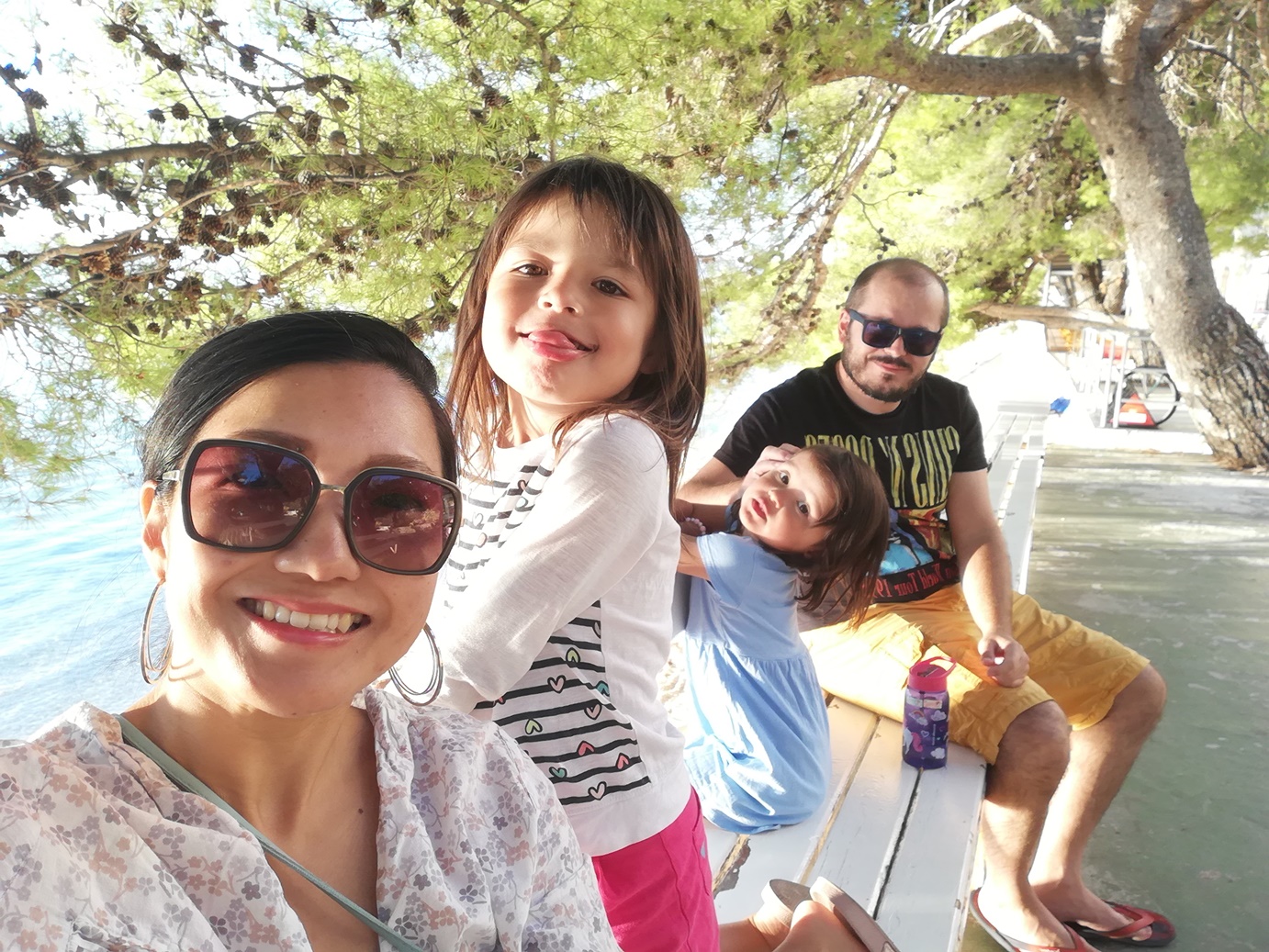
2. Looking back, what were your perceptions and expectations?
I actually experienced a lot of cultural shocks when I first came to Split in 2007. The first shock I had was on the very first day of my arrival. It was a Saturday and the supermarket back then closed at 2 pm on Saturdays and closed on Sundays. From that moment, I realized that Croatia is a country that cared more about family or rest time than money. The second thing that shocked me was the very limited choices for foreign cuisines. I remember there were only 1 Mcdonald's, 1 Mexican restaurant, and 1 Chinese restaurant in Split in 2007. Moreover, the menus in the fast-food stores and konoba everywhere were almost the same, and I wondered why people didn’t find it boring. Nevertheless, the biggest shock of all was the inefficient administration which is a well-known problem even for locals. I expected more European standards, working hard, diversity and open-mindedness in Split.
Despite the cultural shocks, I have been constantly amazed by how much Croatian people love their country, sports (especially football of course), jokes, and history.
3. After 9 years here, how have those perceptions changed. Do you now view Croatia differently?
In the last 9 years of living in Split, I have witnessed improvements in terms of touristic offers, acceptance of foreigners, and administration. It is exciting to see that Split/Croatia is advancing, slowly but surely. I would say that having some of my perceptions or expectations changed is not only because of the city/country’s endeavor, but also because I got to know more about the culture, lifestyle, and historical reasons, and I tried to embrace and accept them. Moreover, I have children now, so the “pomalo” and simpler lifestyle in Split which I used to find too slow is now great for me and my family.
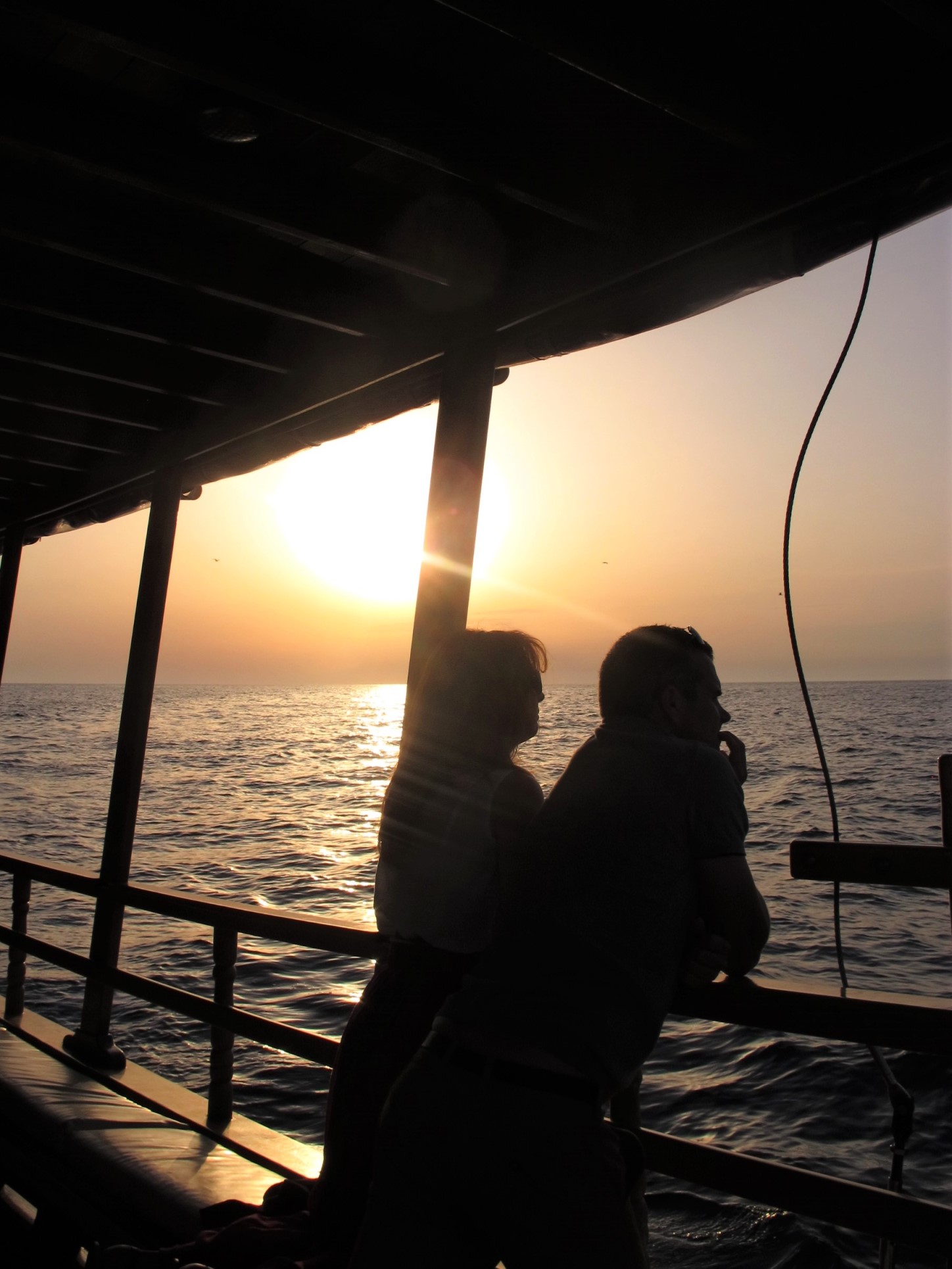
4. After your time year, the 3 things you love most about Croatia?
Water - I genuinely find the water in Croatia is very clean and I love drinking tap water in Split which is sweet and tasty. And of course, the Adriatic Sea is a gem.
Safety - Croatia is a very safe country. I feel safe walking alone at night, even on some quiet streets.
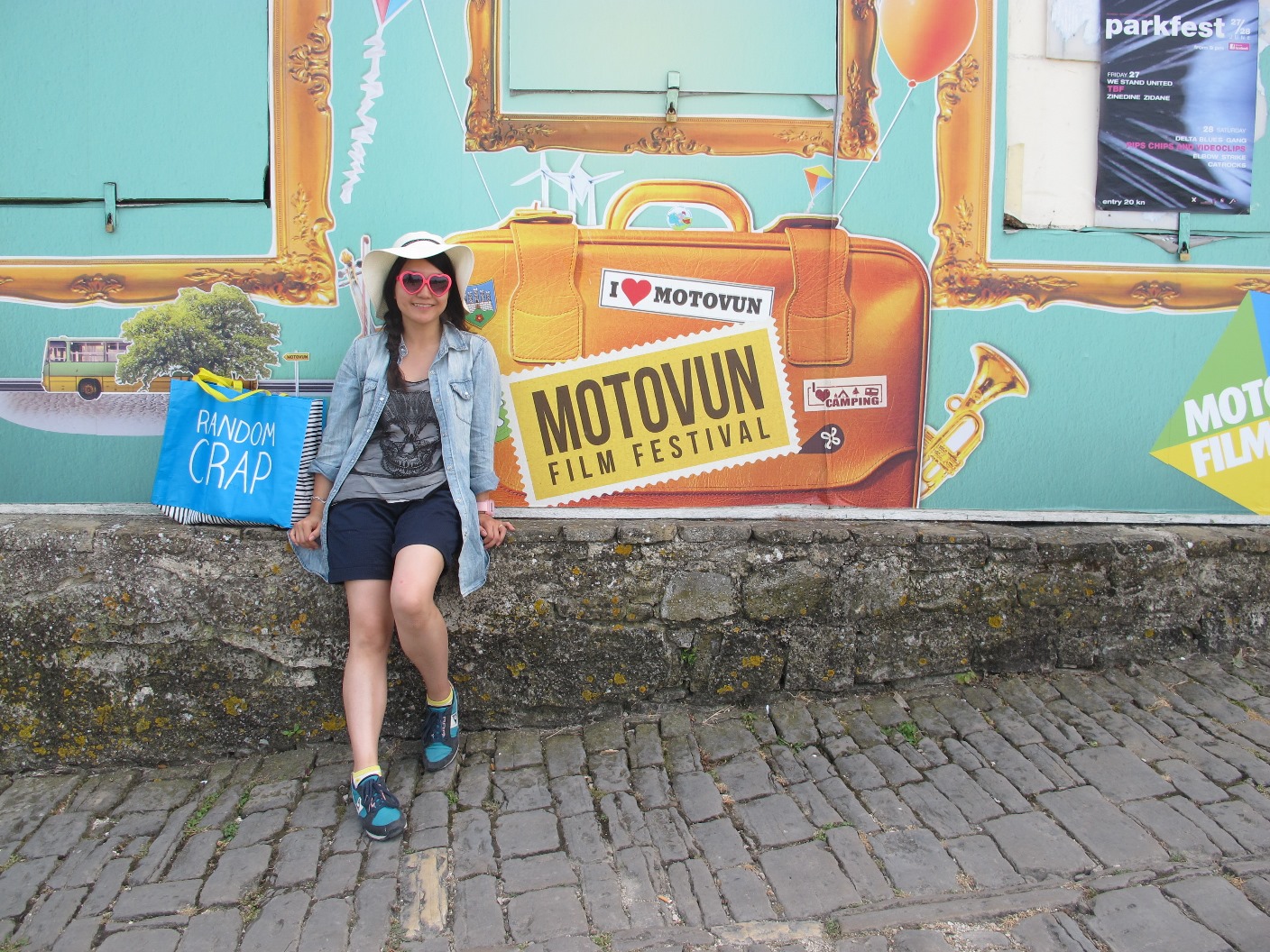
People - I am very impressed by how much Croatians love their country and how they are proud of their culture, food, nature, national teams, and so on. I met many Croatian families and they are all amazing hosts, always give the best to guests and make you feel welcomed. It may not be easy to be friends with locals at the beginning, but once the friendship is developed, they keep you dear to their hearts.
5. And the 3 things you would like to change.
The culture of “using connection”. Ever since the beginning of my life in Croatia, I have heard so much from the locals about how everything is done through connection. From getting a place in public kindergarten to getting a job in government, many people find it normal to use connections to have shortcuts or even get the deal directly.
Parking issues in Split. There are not enough parking spots in Split. It is always a headache to find parking, especially in the center. There are many “creative” drivers who like to leave their cars somewhere they are not supposed to.
The real estate prices in Split are crazy for both rental and buying.
6. Given your experiences, what advice would you give to any would-be expat thinking of making the move?
Look up information from expat groups on social media and expatincroatia.com. They are very helpful and informative.
The administration and paperwork is complicated, so be patient and it is very likely that you need a native Croatian speaker (e.g. lawyer, translator, local friend) to help you deal with it.
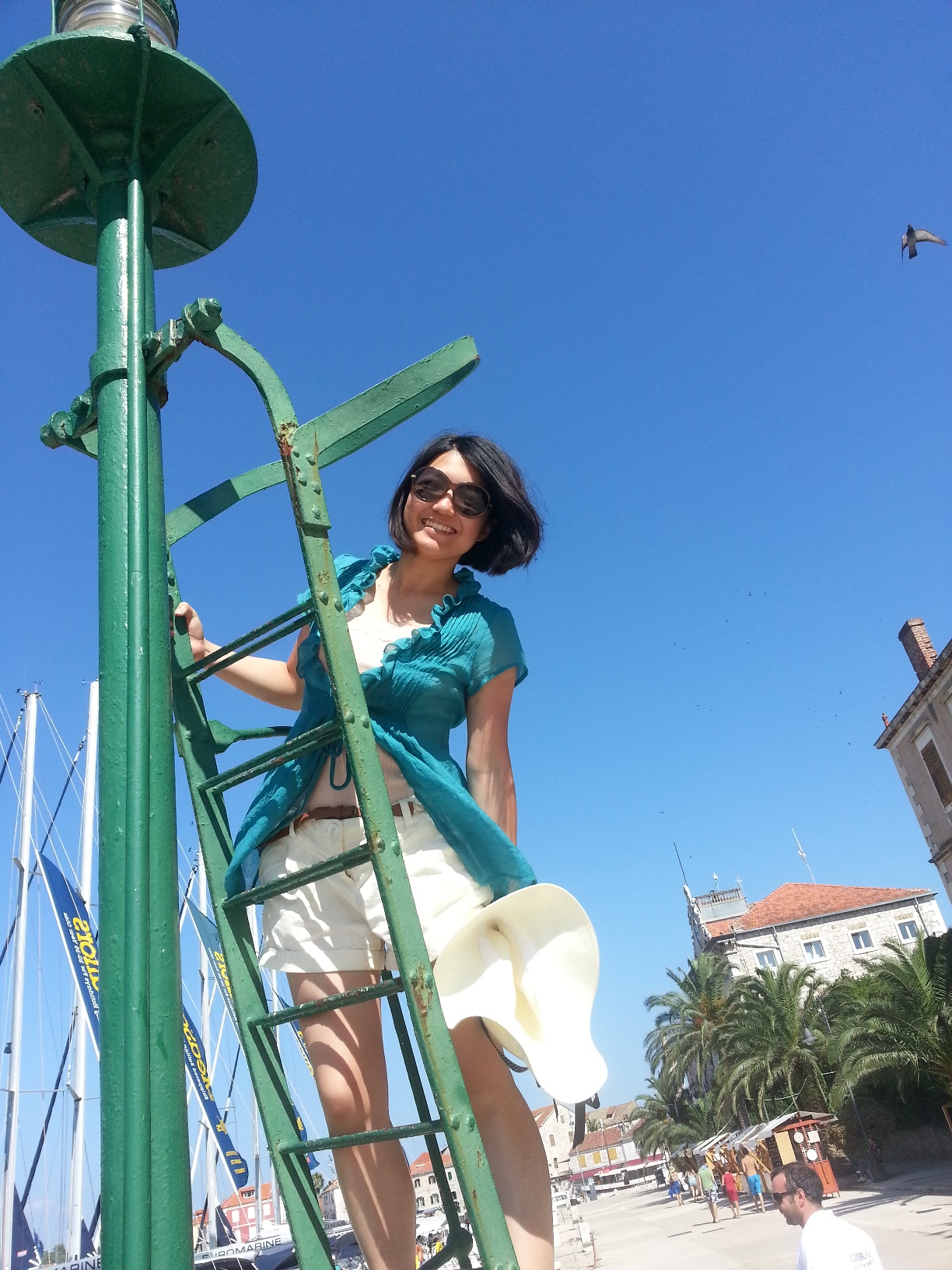
People from different regions in Croatia have different mentalities and work styles. In the southern part (Dalmatia), people, in general, are quite relaxed and less organised, so it is important to manage your expectation and find a place where you feel comfortable staying or work in.
7. The most beautiful place in Croatia, and why?
I love Istria. Love the sea, the green, and colour houses. Istria is not very big but it has a lot to offer.
Your favourite moment of your time in Croatia?
One of my favourites is the sunset dolphin-watching tour in Rovinj. The sunset was romantic, the host was friendly and so passionate to share homemade liquor with guests, the dolphins were lovely and Rovinj is a beautiful town. The tour was a very special experience.
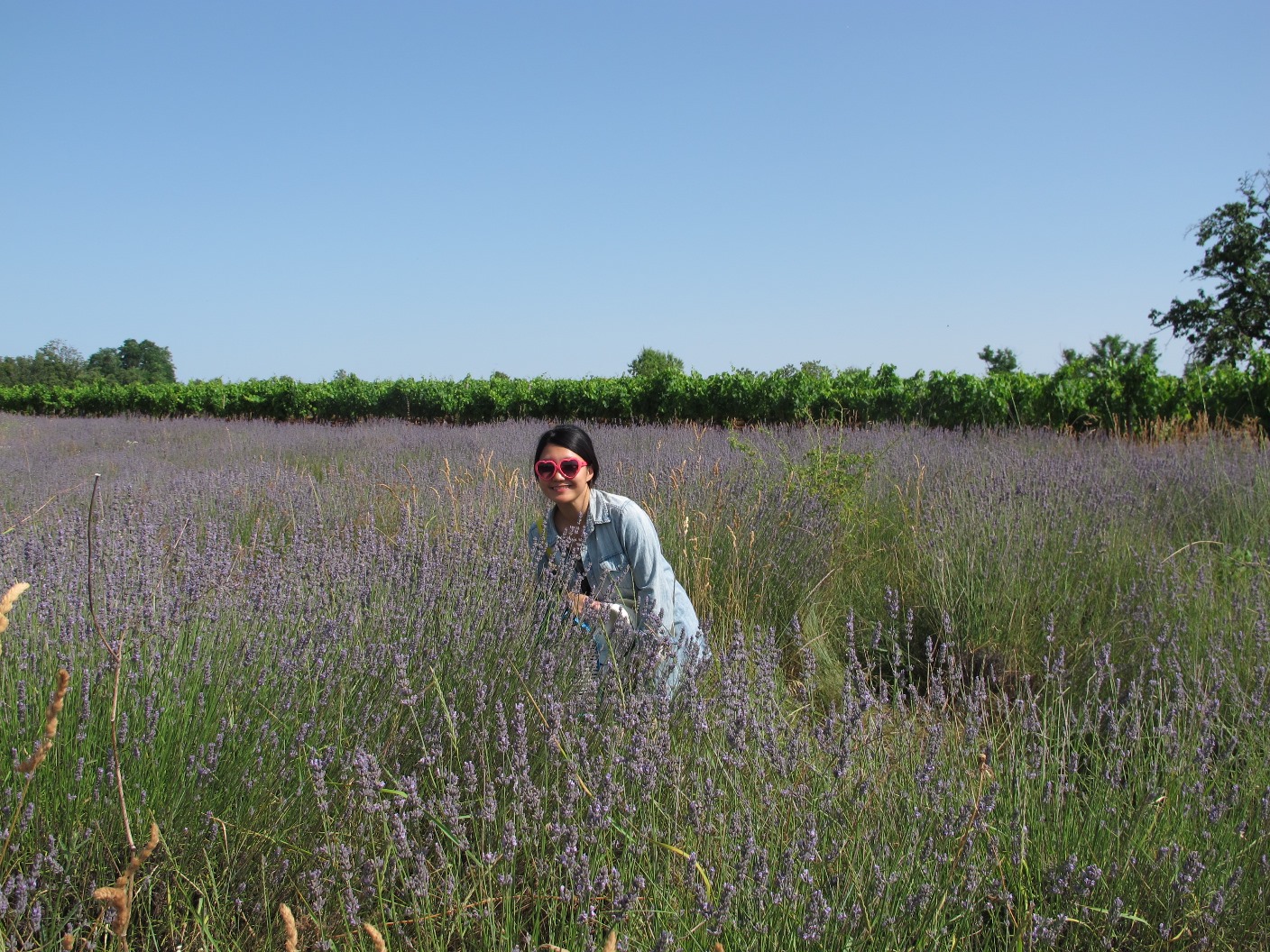
Are you an expat who would like to be featured in this series? If yes, please contact This email address is being protected from spambots. You need JavaScript enabled to view it. Subject Expat
For more, make sure to check out our dedicated lifestyle section.
5+ Years Living in Split: Expat Sandra Perkovic from Canada
May 16, 2022 - In our new TCN series, we uncover the lives of expats that have spent over 5 years living in Split. Next up, meet Sandra Perkovic from Canada.
Two idyllic weeks on a Croatian beach is very different from the realities of full-time living. So what is it really like to live in Croatia as an expat? In a new series on TCN, we meet expats who have lived here for 5 years or more, to find out from them the good, the bad, and the ugly of 12-month living in Croatia. Next up, Sandra Perkovic from Montreal, Canada!
1. Tell us firstly how you came to Croatia? What motivated you to choose this slice of paradise and how long have you now been here?
I met my husband in Canada while he was on tour, we then got married and I moved to Croatia. For me, moving to Croatia was a childhood dream of mine. I have been living in Croatia for 20 years - 10 in Zagreb and 10 in Split.

2. Looking back, what were your perceptions and expectations?
Croatia has exceeded all my expectations, even though my cousins used to tell me it's not the same vacationing here and living here.
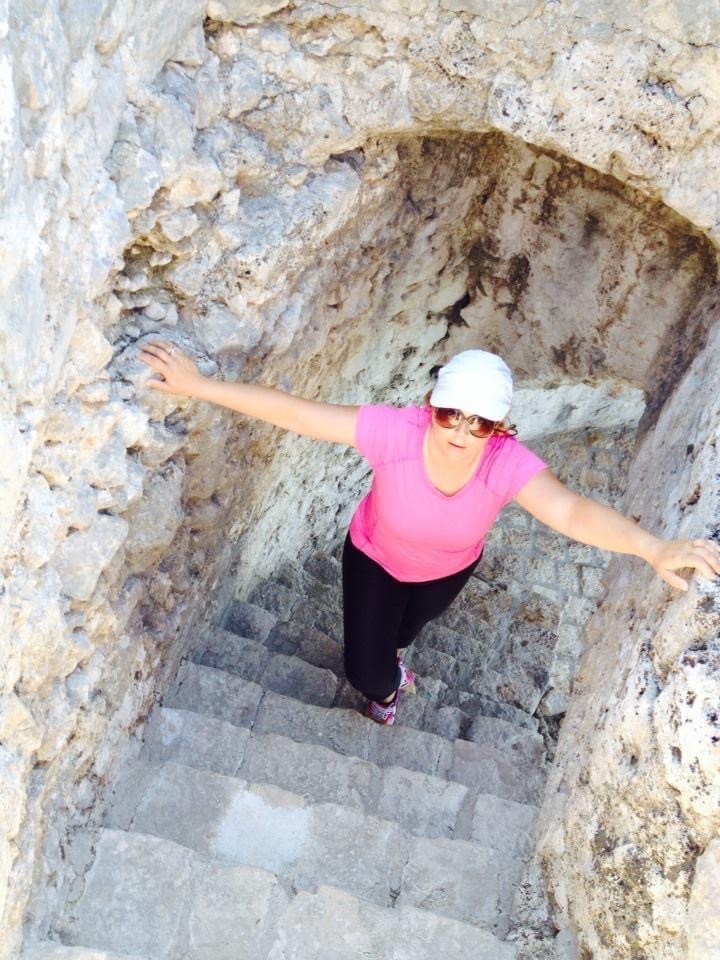
3. After 20 years here, how have those perceptions changed. Do you now view Croatia differently?
I think that Croatia is the best place to raise a family. It's so fun living here and I love nature and the fact that it is a small country with so many different climates. I love that you can be on the beach and in one hour you can be skiing.
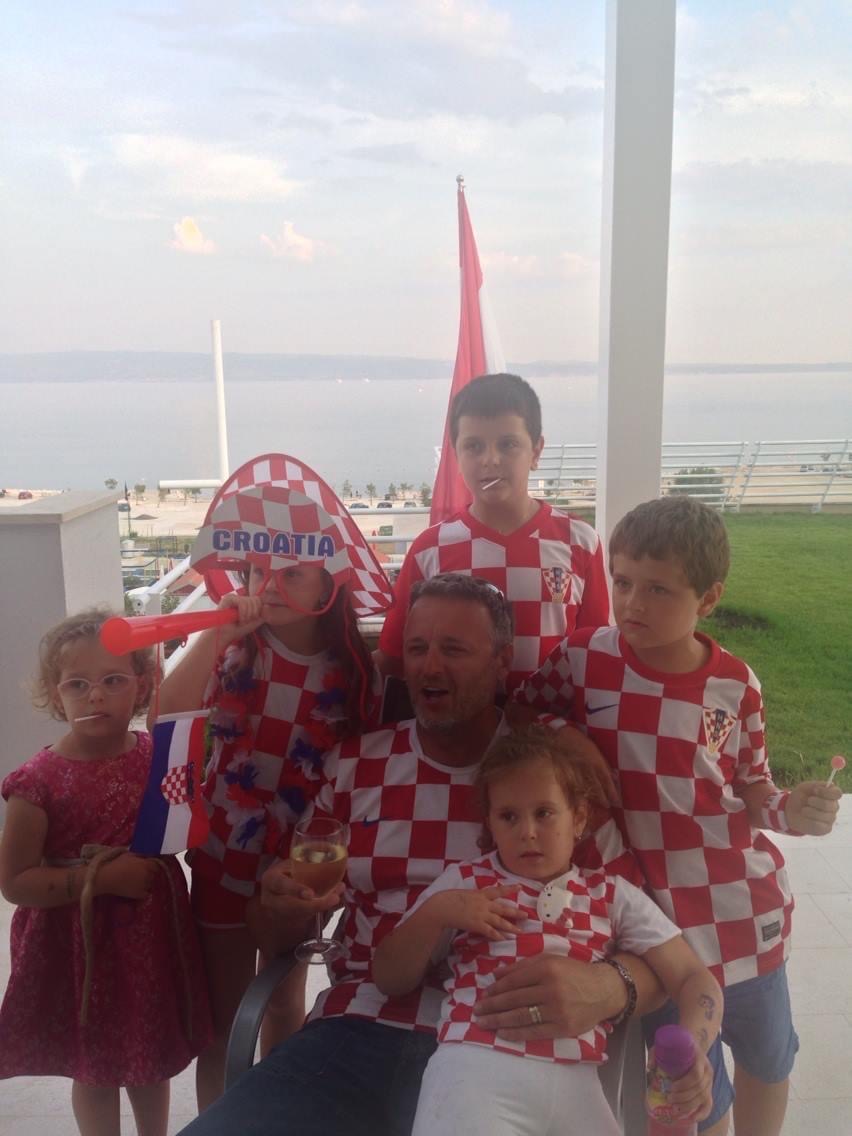
4. After your time year, the 3 things you love most about Croatia?
I love Croatia for its safety; children have freedom here because it is so safe. I love how there is always a festival going on, it's just so much fun living here and lastly, I love nature, the national parks, the sea, the mountains, such beautiful nature, and of course how everyone always has time for kava…. Kava in Croatia can last for hours.
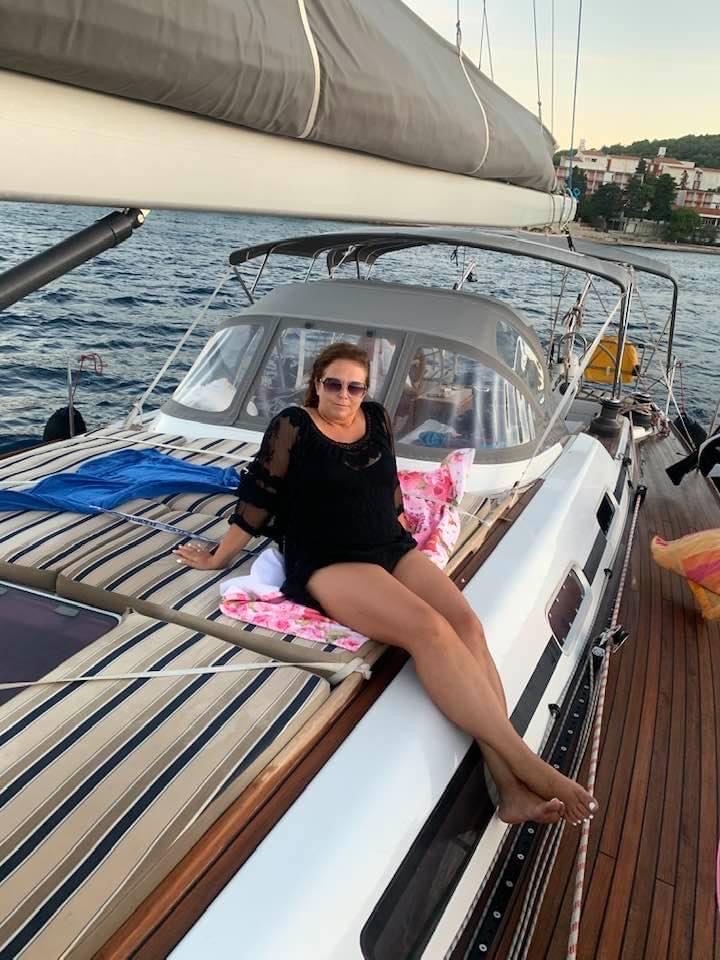
5. And the 3 things you would like to change.
I wish that people were more pet friendly, although this is getting better, I wish that people got jobs based on their qualifications rather than through connections and I wish that the school system was not so demanding.
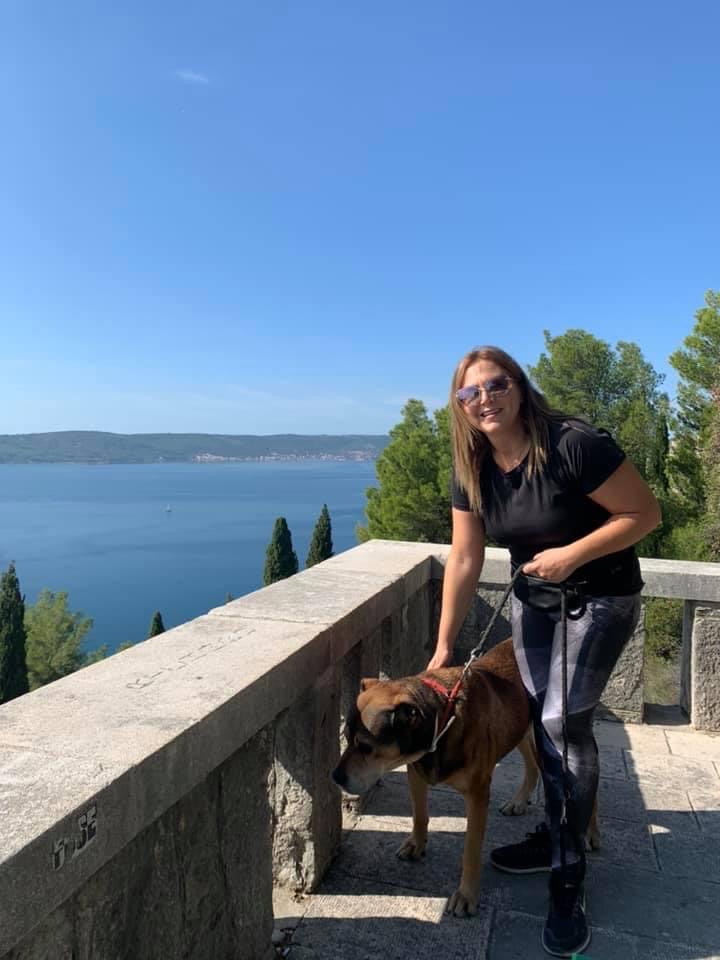
6. Given your experiences, what advice would you give to any would-be expat thinking of making the move?
I will never regret coming here, I just regret not coming sooner. If you are considering the move to Croatia don’t hesitate.
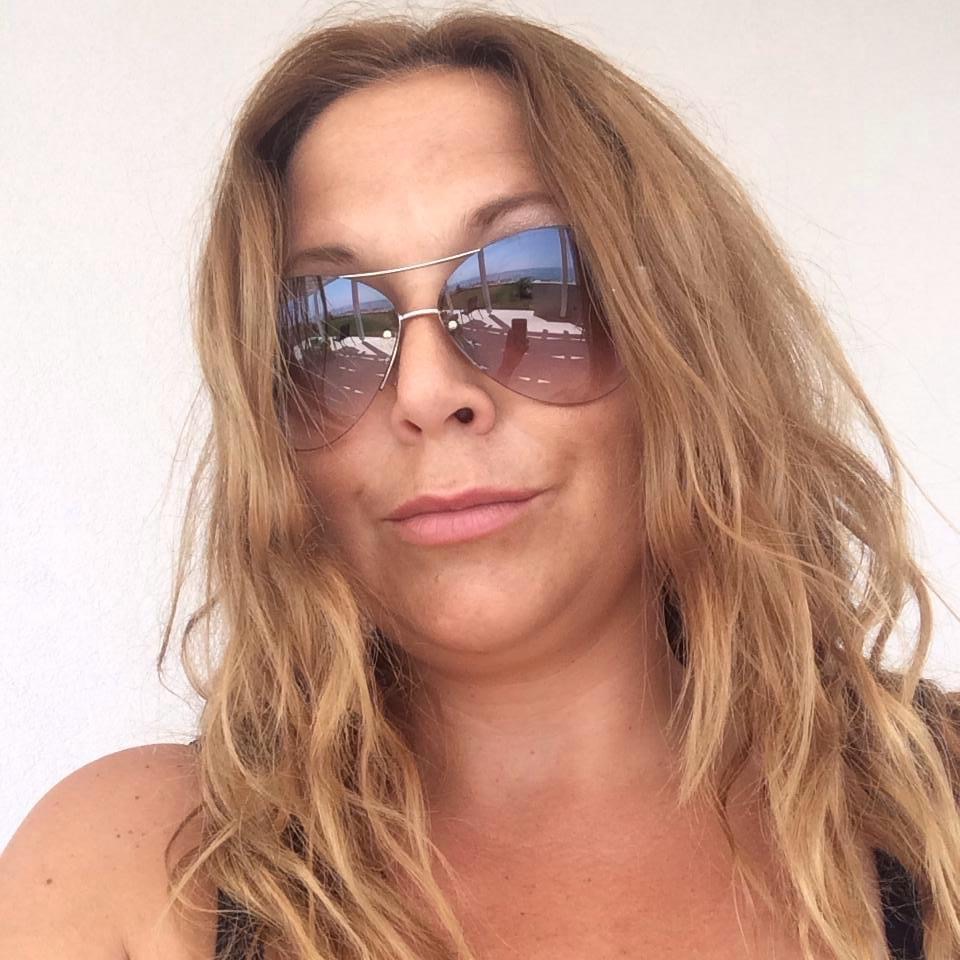
7. The most beautiful place in Croatia, and why?
Oh, so many beautiful places. I love Zagreb because it’s a big city and has it all, but I also love the islands along the Dalmatian coast.
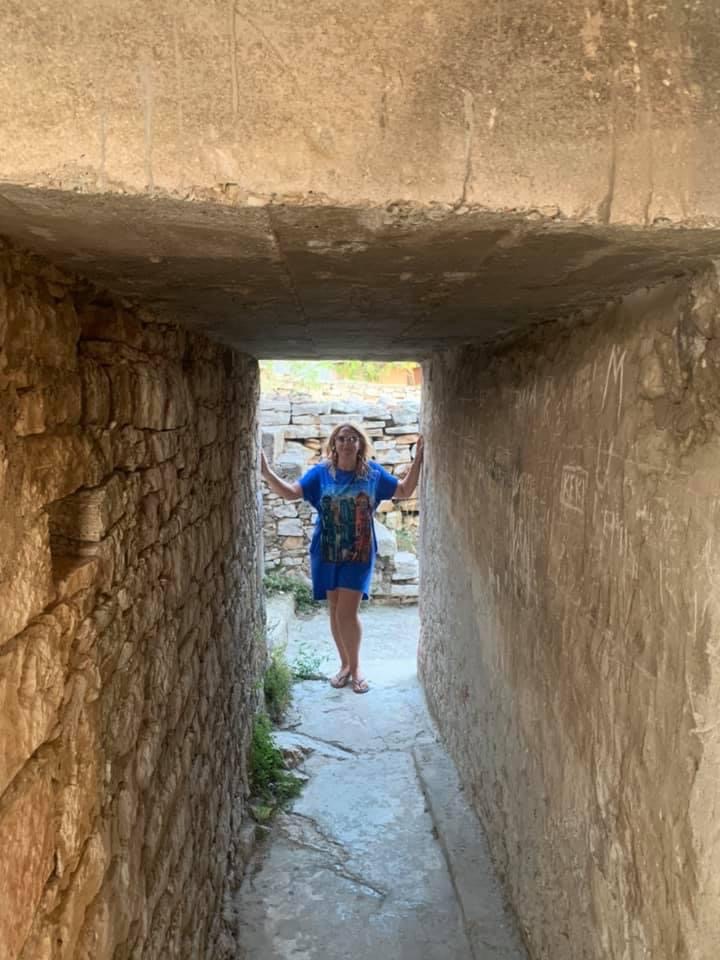
8. Your favourite moment of your time in Croatia?
My favourite moment is waking up each day in Croatia and being aware that I am living my dream. Croatia is a dream come true.
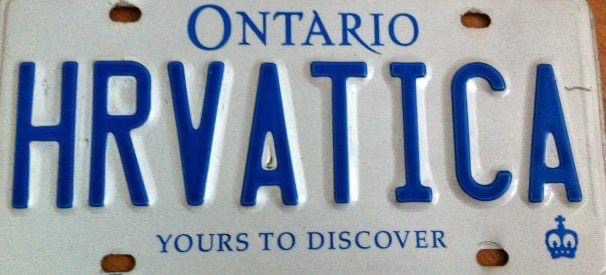
Are you an expat who would like to be featured in this series? If yes, please contact This email address is being protected from spambots. You need JavaScript enabled to view it. Subject Expat
For more, make sure to check out our dedicated lifestyle section.
5+ Years Living in Split: Expat Eric del Castillo from Mexico City
May 11, 2022 - In our new TCN series, we uncover the lives of expats that have spent over 5 years living in Split. Next up, meet Eric del Castillo from Mexico City!
Two idyllic weeks on a Croatian beach is very different from the realities of full-time living. So what is it really like to live in Croatia as an expat? In a new series on TCN, we meet expats who have lived here for 5 years or more, to find out from them the good, the bad, and the ugly of 12-month living in Croatia. Next up, Eric del Castillo from Mexico City!
1. Tell us firstly how you came to Croatia? What motivated you to choose this slice of paradise and how long have you now been here?
It's a long story, but starts in Sausalito, California. In 1996, I was at an artistic residency at The Headlands Center for the Arts. There I met Neli Ružić an artist from Split and I fell in love with her at the first moment. A year later I visited Split for the first time when Luka was born, the following year Neli and Luka visited Mexico, and a year later I returned to Split for them and we went to live in Mexico. Pablo was born in Mexico City and we lived there for 13 years. At a hearing in the summer of 2010, we decided to move and live in Split, after two years of preparations we finally arrived in Split in 2012. Now we have almost 10 years living here.
2. Looking back, what were your perceptions and expectations?
From 1997 to 2010, I saw a great change in the infrastructure and the economy of the country and good quality of life. However, in Mexico, the so-called war against drugs began and violence and insecurity grew up. Our expectation was to offer our children a much safer and healthier environment. Every day I confirm that we were not wrong and that we made the right decision.
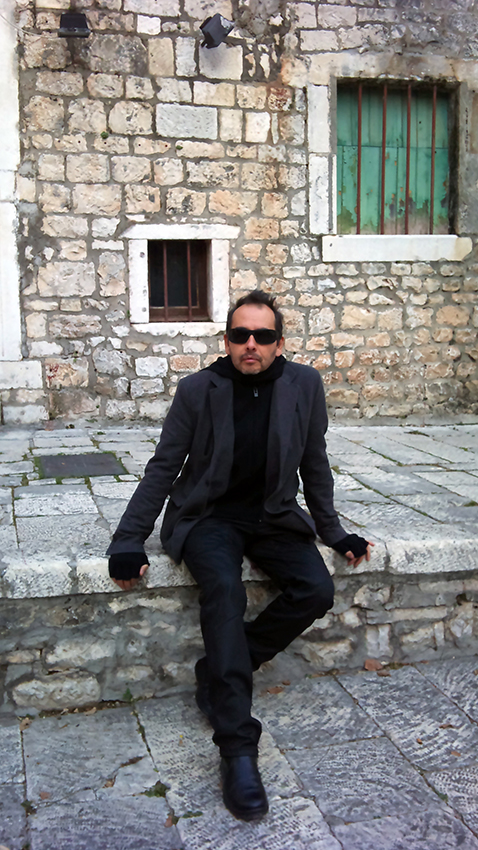
And of course, language is an issue, but malo po malo. I'm doing better and already I got my permanent residency.
3. After 10 years here, how have those perceptions changed. Do you now view Croatia differently?
There is no perfect place, as everywhere there is bureaucracy, corruption, lack of budget, legal gaps, poverty, and inequality. But I think that these are things that are much easier to solve in a country of 4 million than in others of 130 million.
4. After your time year, the 3 things you love most about Croatia?
The art scene and the artistic community, it's a very supportive group and I've made great friends, they are amazing people.
The food and the good quality and freshness of local products, and of course the extraordinary good weather.

5. And the 3 things you would like to change.
A more open society
Simplicity in government office services, meaning less bureaucracy and more digital services.
To have in the old town center a digital fiber-optic network.
A better system and more awareness on separation and recycling of waste disposals.
6. Given your experiences, what advice would you give to any would-be expat thinking of making the move?
Split is a fascinating city, with great history. Very safe and easy to access and move around, everything is relatively close. For me, it is a source of inspiration and in every corner, I always find extraordinary details, with so many layers of history one above another, it is like a visual palimpsest.
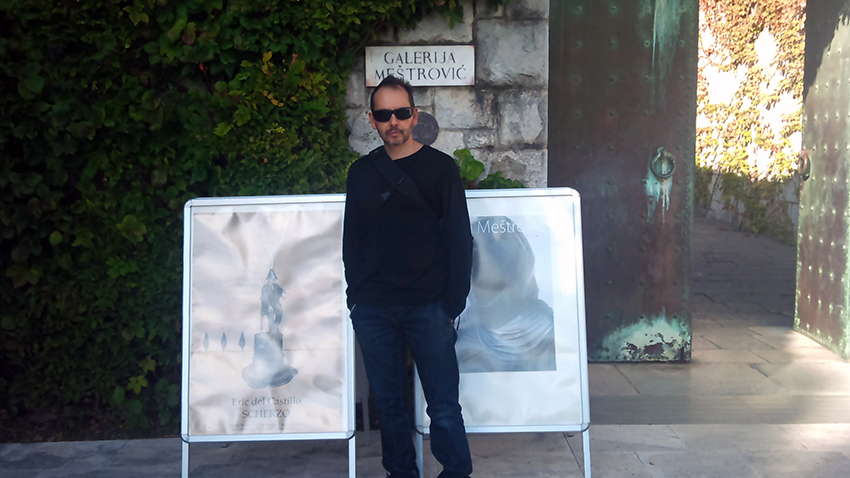
7. The most beautiful place in Croatia, and why?
I couldn't mention just one there are lots of them: I love the cities of Split and Zagreb, the landscapes, the sea, and the islands. Nature is incredibly beautiful in Croatia.
8. Your favourite moment of your time in Croatia?
There are many moments that I have really treasured. Christmas is one of the few dates that we can all be together. When I have exhibitions, I had several exhibitions in split and Zagreb.
When we receive family and friends from Mexico, the house is always open to receive visitors.
Summer In Šolta, we are there a big part of summer and we spend all the time in nature.
I always have lots of work to do there, taking care of the garden and plants, trying to plant and develop my avocado trees, for now, I haven't succeeded, improving year by year the technique of suho zid, and of course, always creating some artwork.
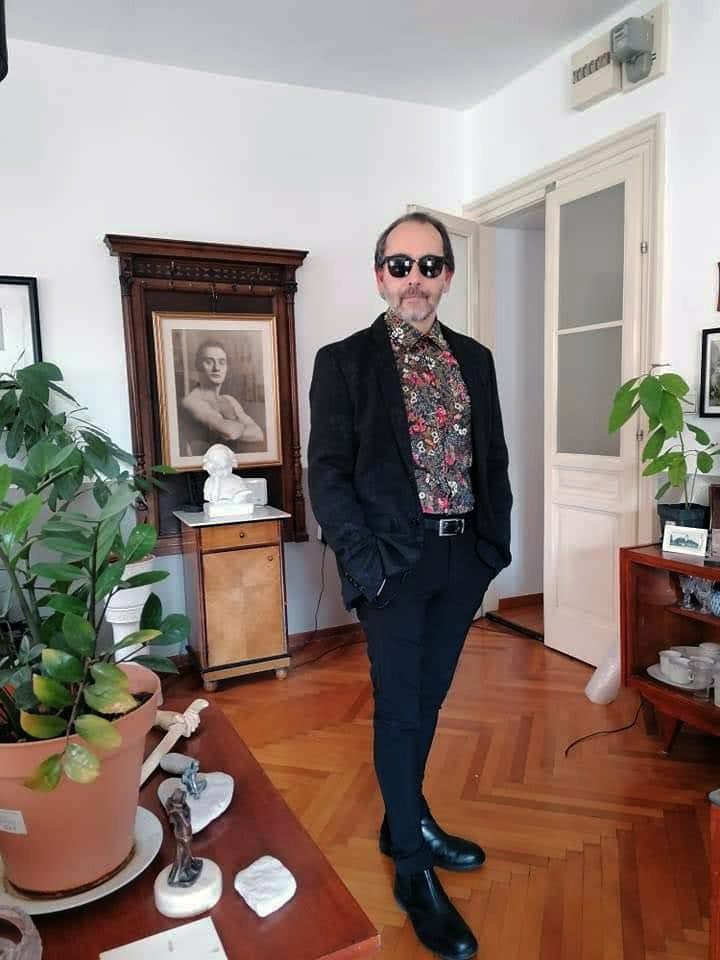
Learn more about Eric here:
facebook@ericdelcastilloarchive>
Are you an expat who would like to be featured in this series? If yes, please contact This email address is being protected from spambots. You need JavaScript enabled to view it. Subject Expat
For more, make sure to check out our dedicated lifestyle section.
5+ Years Living in Split: Expat Marko Gómez Karadza from Peru
May 10, 2022 - In our new TCN series, we uncover the lives of expats that have spent over 5 years living in Split. Next up, meet Marko Gómez Karadza from Peru!
Two idyllic weeks on a Croatian beach is very different from the realities of full-time living. So what is it really like to live in Croatia as an expat? In a new series on TCN, we meet expats who have lived here for 5 years or more, to find out from them the good, the bad, and the ugly of 12-month living in Croatia. Next up, Marko Gómez Karadza from Lima, Peru.
1. Tell us firstly how you came to Croatia? What motivated you to choose this slice of paradise and how long have you now been here?
I came to Croatia being driven by the need to get connected to my roots, as I'm a Croatian descendant (my grandpa was Croatian). Initially, my idea was to spend 1 year here to enjoy the place, see my relatives and get more in touch with the culture. For that, I joined the program called "Croaticum" to also learn the language while I was sorting my Croatian documents, which also was part of my initial goal. Once I arrived in Croatia, it didn't take me more than 1 month to realize I would stay for way longer than planned. Currently, I have almost 6 years living in Split.
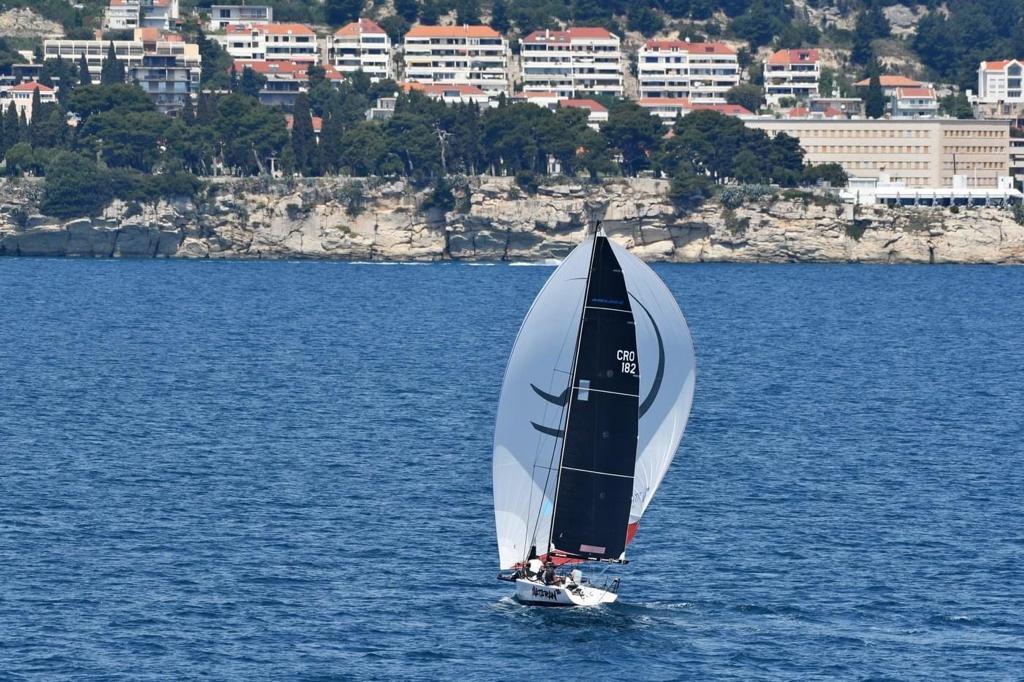
2. Looking back, what were your perceptions and expectations?
In terms of my expectations, I already knew how beautiful it was because of some pictures I saw beforehand, but once there I can say that reality surpassed my expectations! Also once here, I got to dive deeper into the historical heritage and culture which is impressive for someone that loves that kind of stuff and knew just a small portion of it. The food was also above my expectations in a very positive way.
3. After 5+ years here, how have those perceptions changed. Do you now view Croatia differently?
After 6 years living here, I have to say that my perceptions didn't change so much. It is true that I have a wider idea of how all works and happens in this country and I'm more aware of the pros and cons of living here, but I would say that your perception will change depending on where you are coming from. I see a lot of things that work way better here compared to my home country, other things are interestingly working in the same way and maybe some others could happen in a better way, but that is some encouragement to eventually help make a positive change on them.
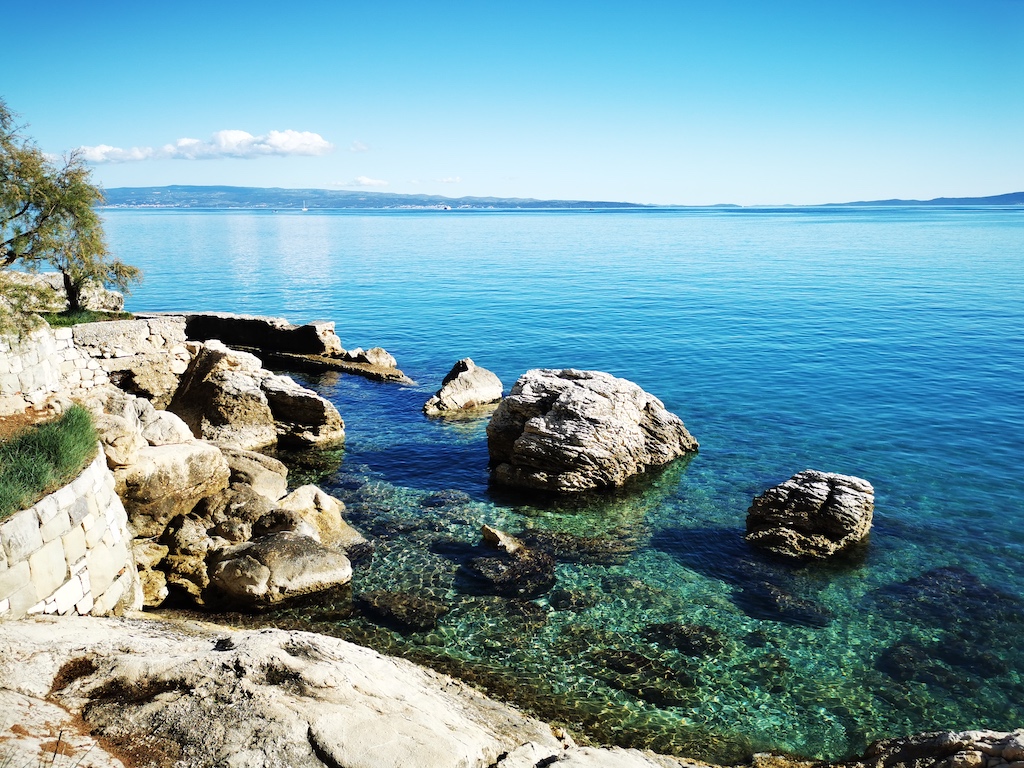
4. After your time here, the 3 things you love most about Croatia?
After 6 years I can say that the 3 things I love most about Croatia are: The beautiful nature and perfect geographic location, the safeness all around the country with a very little delinquency rate compared to other countries; and the beautiful and kind-hearted people I met and shared life with.
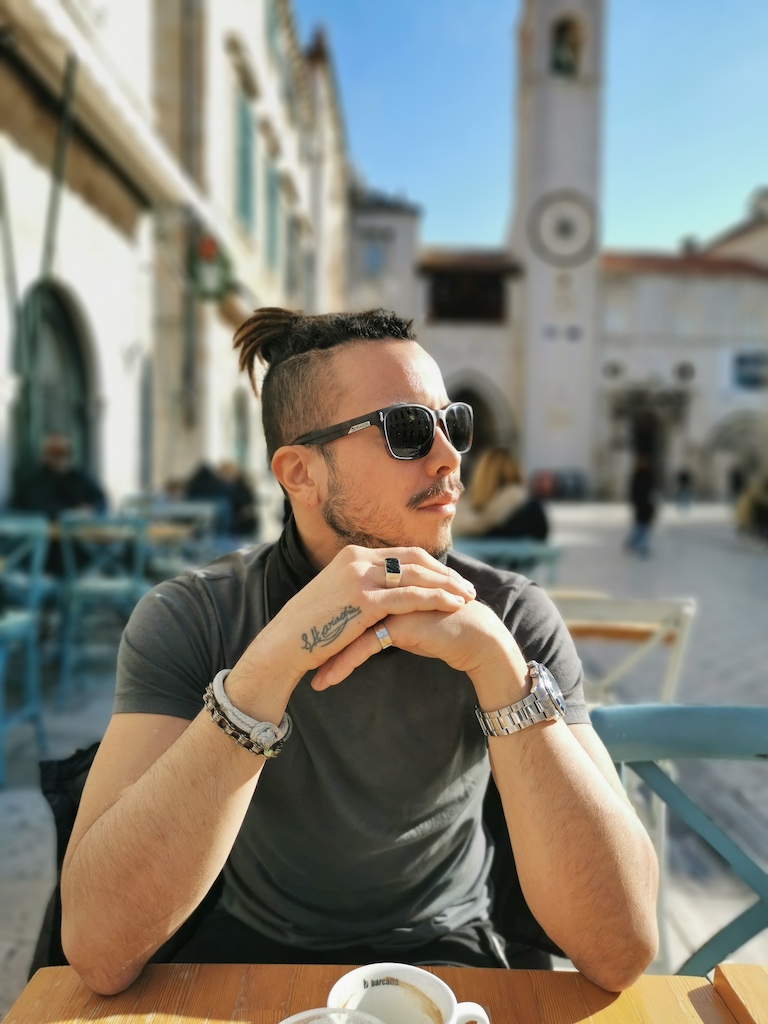
5. And the 3 things you would like to change.
3 things I would change would be: the long, slow and tedious bureaucracy, the lack of support to entrepreneurs and small new companies which are being killed with high taxes mostly; and the focus on building more industries rather than just focusing on tourism.
6. Given your experiences, what advice would you give to any would-be expat thinking of making the move?
I would advise you to learn a bit about the culture and the language beforehand. You are always gonna be welcomed here but it really changes if you are seen as somebody who puts some effort in trying to learn a bit, at least, about their culture and language. People will appreciate it a lot. Also, analyze the industries and business/job opportunities well in advance for a year-round living, normally things tend to change with the seasons so it is good to be some steps ahead in that field.
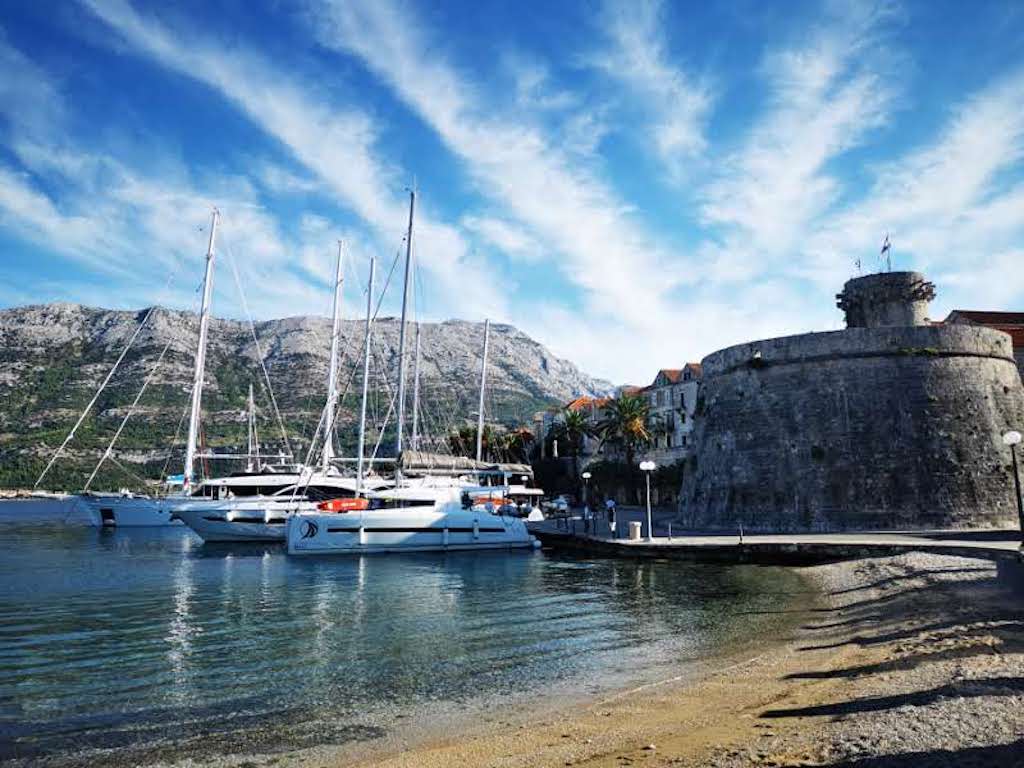
7. The most beautiful place in Croatia, and why?
As a sailor by profession, I dedicated a lot of time to sailing around the Croatian coastline and islands and I have to say that my favorite place is Korčula. It is such a beautiful island full of green all around, amazing lovely bays and impressive historical heritage. Also, since it is very close to the Pelješac peninsula, it is a great place to enjoy some good wines too!
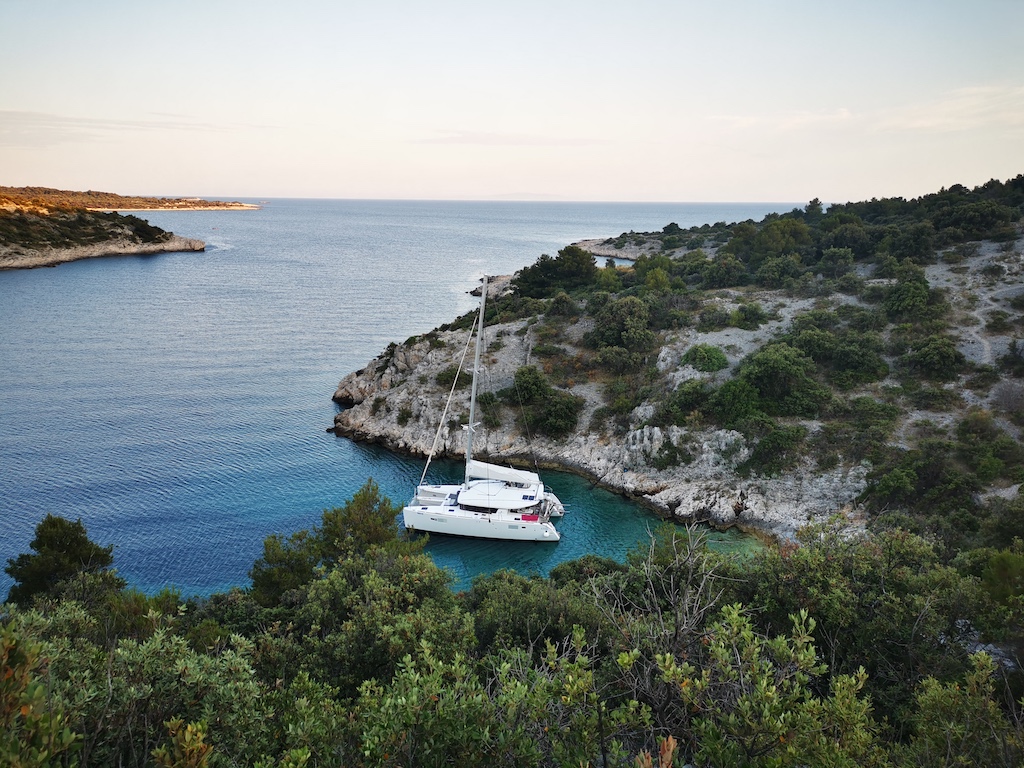
8. Your favourite moment of your time in Croatia?
My favorite moment here I would say was when my mom came to visit me and we went to visit the old house where my grandpa was born and lived as a child.
I live in Split and I am a professional skipper. My Instagram account is @gkmarko where people can see beautiful places around the Croatian coast and can reach me if interested in sailing here!
Are you an expat who would like to be featured in this series? If yes, please contact This email address is being protected from spambots. You need JavaScript enabled to view it. Subject Expat
For more, make sure to check out our dedicated lifestyle section.
5+ Years Living in Split: Expats Andy and Cindy Elder from England
May 9, 2022 - In our new TCN series, we uncover the lives of expats that have spent over 5 years living in Split. Next up, meet Andy and Cindy Elder from England!
Two idyllic weeks on a Croatian beach is very different from the realities of full-time living. So what is it really like to live in Croatia as an expat? In a new series on TCN, we meet expats who have lived here for 5 years or more, to find out from them the good, the bad, and the ugly of 12-month living in Croatia. Next up, Andy and Cindy Elder from England.
1. Tell us firstly how you came to Croatia? What motivated you to choose this slice of paradise and how long have you now been here?
We met 17 years ago on a dating site after both of us having been widowed. Andy was already into sailing and had a dream. He wanted to retire early and buy a boat to live on and travel. He took me on several sailing holidays, including around Dubrovnik, so I could see if I would enjoy that life. On our last trip, we decided to hire a catamaran. I thought it might be more comfortable to live on, instead of a monohull. There weren’t many places that had the second-hand make and model we wanted, but Croatia was one of them. It seemed ideal, as the others tended to be in the Caribbean, a bit far to organise from England! I was still working, so Andy made a trip to Split to see the boat, sent me the photos, and we fell in love with it. He then made several trips by car to finalise everything, the last one coming back only a day before our wedding! We spent our honeymoon on our catamaran “Two Can Play”, and then went back to get everything packed, and either drove it back here, or delivered on pallets through a transportation company. I don’t think we would have made such honest and helpful friends anywhere else. Must have been fate to come to Croatia. We’ve never regretted it.
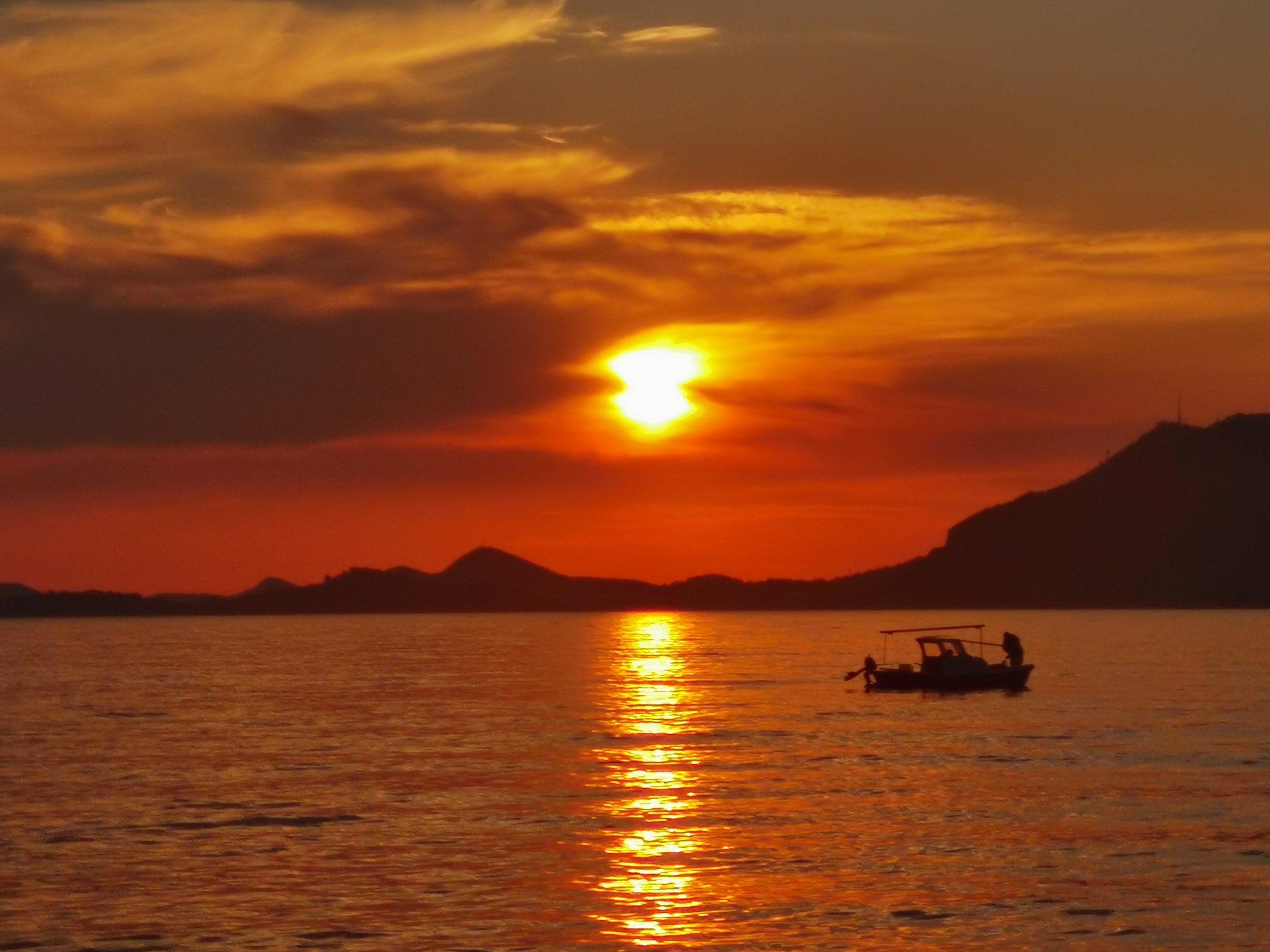
2. Looking back, what were your perceptions and expectations?
We expected to stay here a year, then sail onto Greece and further. There was so much to see that we decided to stay another year to see the rest of the coastline, and a few places inland by car. Then Covid hit. We decided that it was better to stay here, visiting places we knew, knowing people who could help (we got our resident permits after Brexit with A LOT of help from our friend in Split! We have a doctor and a dentist. Andy is currently in hospital in Zagreb after having to wait 2 years because of Covid to get surgery to repair the blocked main artery in his leg. Another story for another time maybe!
3. After 5 years here, how have those perceptions changed. Do you now view Croatia differently?
We didn’t think we would love it here so much that we would still be here 5 years later, Covid or not. Even after 5 years, there are still places we would like to visit. We didn’t realise just how rich and diverse the history is. The people here are so friendly, helpful, and generous. We do think, however, that our friend here in Split might just sabotage us ever leaving the country!!!
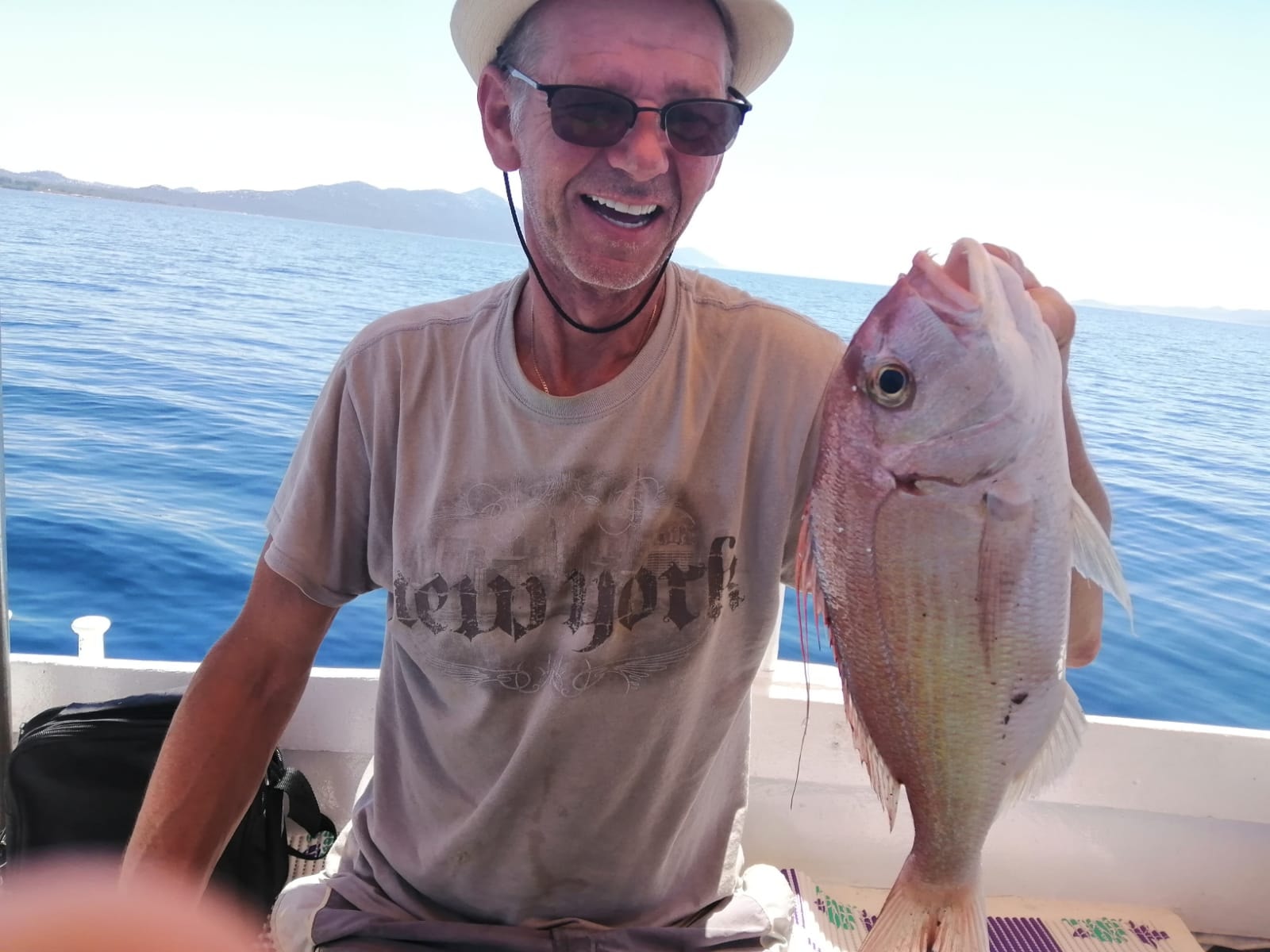
4. After your time here, the 3 things you love most about Croatia?
First: The people. We have made the most amazing friends here, in Cavtat/Dubrovnik, Split, and Zagreb. The best friends you could possibly have. We just wish your language wasn’t so hard. I can speak German and some other languages enough to get by. The Germanic and Latin-based words I can just about handle, even the Slavic ones, but the rest? We still keep trying though!
Second: The food! I am always telling people that the best beefsteaks are in Croatia, and their pizza is better than in Italy
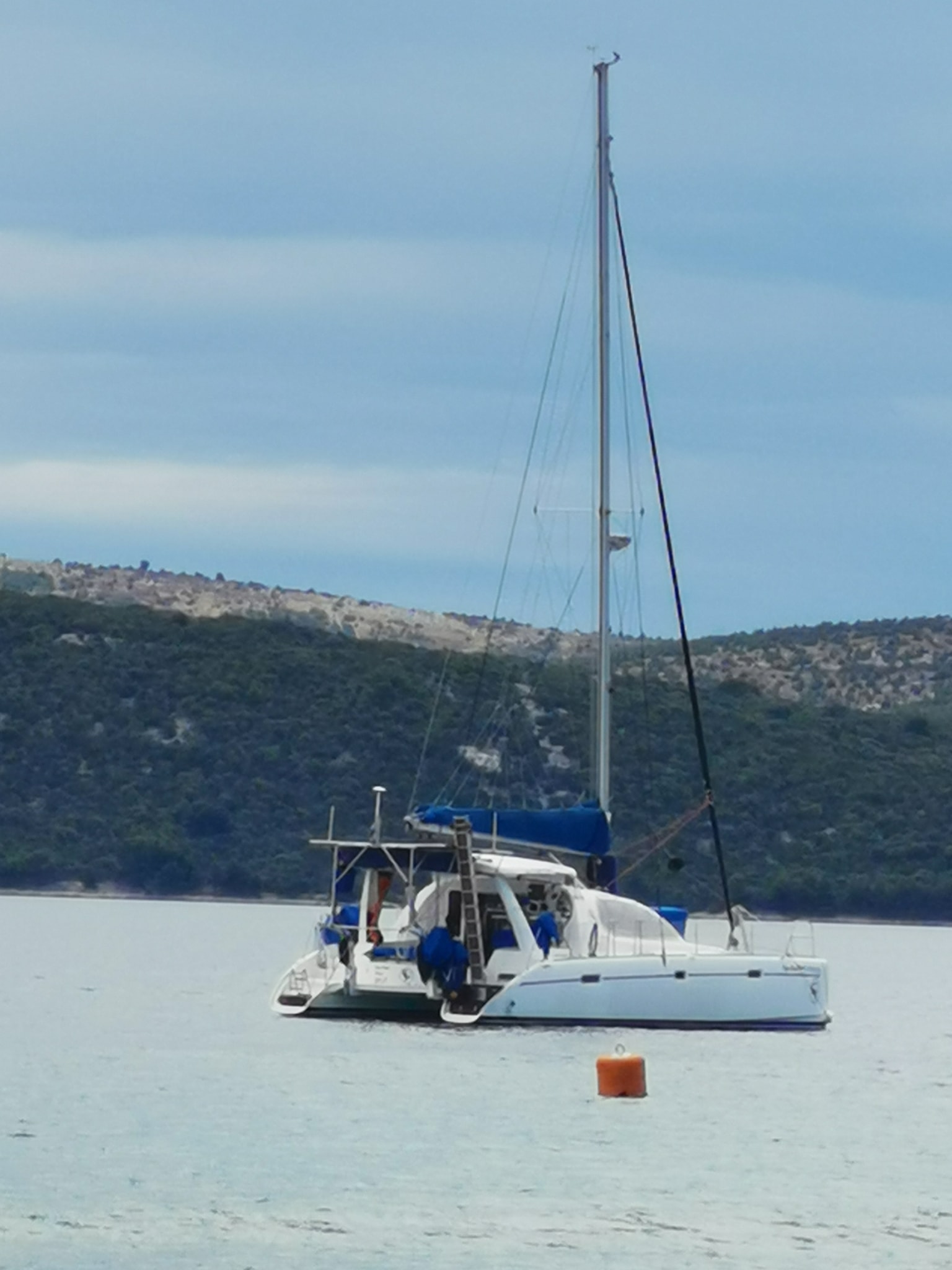
Third: The history. An almost intact Roman arena older than Jesus? Roman artifacts everywhere? Places that look like Venice or Vienna? The history and beauty of this country is hard to beat.
5. And the 3 things you would like to change.
First: Not so many stamps! It’s a common joke of ours to make fun (lovingly) of the bureaucracy in this country. Need a document? Go to 5 different places, and get it stamped in each place. Then maybe you can get or do what you need.
Second: Need your car M.O.T.? Spend all day queueing up to get it passed.
Third: Arrange for someone to come to fix or install anything? Don’t expect them to turn up on time, or even on the same day.
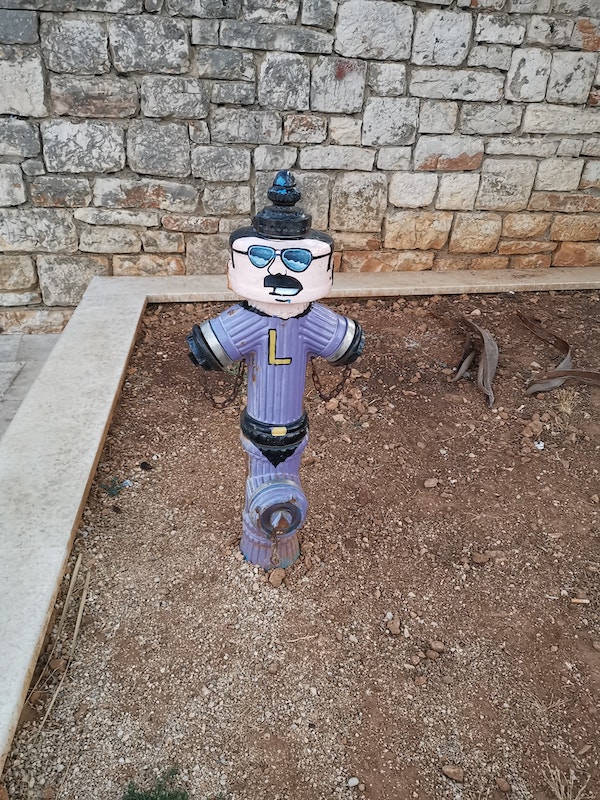
6. Given your experiences, what advice would you give to any would-be expat thinking of making the move?
Go for it! Life is not a dress rehearsal! If you make friends here, they are so kind, helpful, and caring. Just learn that things happen slowly. There is a bit of a “manana” attitude to life here we find both wonderful and infuriating! Think of how long any officialdom should take, then double or triple it. Worth it in the end.
7. The most beautiful place in Croatia, and why?
We can’t really just pick one, it’s a beautiful country! We love Split, it’s alive still in the winter, and not too cold. However, it’s a bit too cold and damp to stay on our boat in the Winter, so for those months we stay in an apartment in Split. It’s great that we can go out to dinner, the movies, and see friends. Lots of great places nearby we can visit by boat or by road. Trogir, Krka waterfalls, Sibenik, Zadar. All beautiful and wonderful. Zagreb for the culture. Tesla museum, museum of illusions.
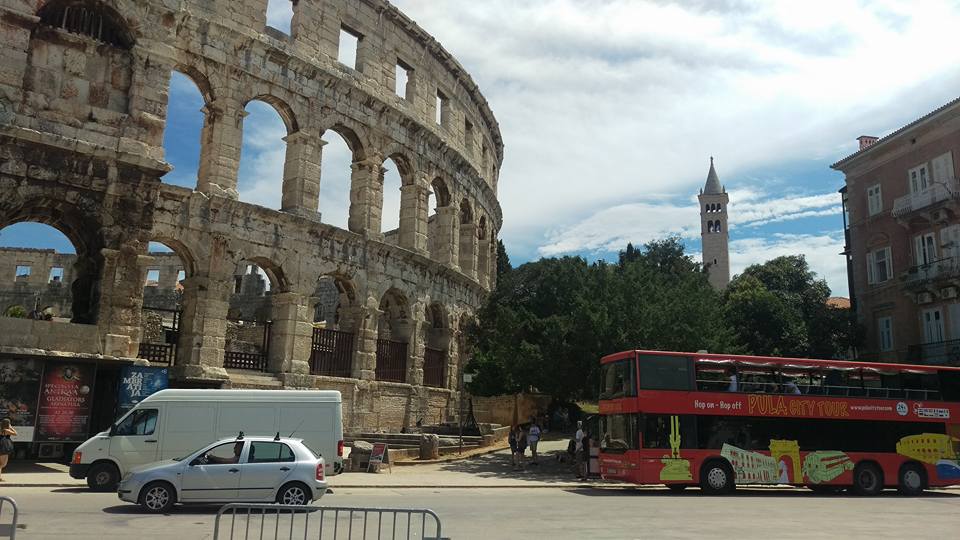
Otherwise, we both love Pula. Amazing that the Roman arena is still so intact, so beautiful! Anchoring in Cavtat, life, but a quiet bay. Visiting Dubrovnik. The views when walking the wall. Sailing by the city to see the walls.
8. Your favourite moment of your time in Croatia?
Again, can’t really just pick one. Watching the sunset from our boat. Never gets boring, and never looks the same way twice. Anchoring by one of the smaller islands or villages and watching the stars. The first time we were invited to a party even though we can’t really speak Croatian. Being told by our friends that we are Split locals, family, like one of them. Fireworks here on New Year’s Eve. Nautical flares, firecrackers, anything goes! Crazy, but fun. Same watching a Hajduk game.
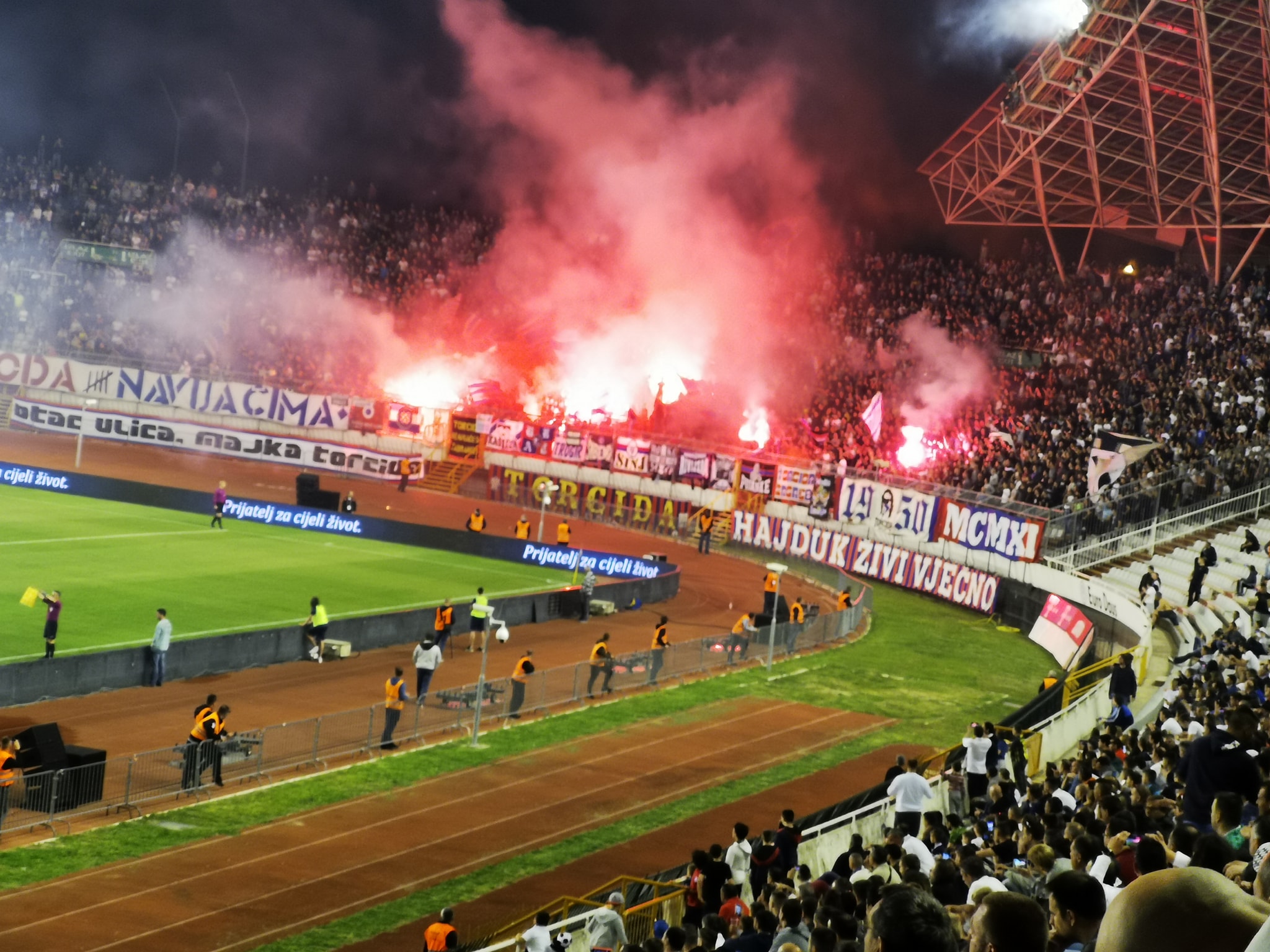
We thought English fans were supposed to be a problem, but the Torcida? Throwing flares on the pitch, setting fire to their seats? Incredible to experience. Anchoring in a bay overlooking the arena in Pula. We are British, on a South African made boat, listening to Tom Jones performing in Croatia in a Roman arena. Can’t get much more international than that!
Also, check out our friend's yacht if you're in need this summer! Yachts | Astarea – #1 Yacht & Charter in Croatia (astarea-yachting.com)
Are you an expat who would like to be featured in this series? If yes, please contact This email address is being protected from spambots. You need JavaScript enabled to view it. Subject Expat
For more, make sure to check out our dedicated lifestyle section.
5+ Years Living in Split: Expat Carla Nemet from the US
May 8, 2022 - In our new TCN series, we uncover the lives of expats that have spent over 5 years living in Split. Next up, meet Carla Nemet!
Two idyllic weeks on a Croatian beach is very different from the realities of full-time living. So what is it really like to live in Croatia as an expat? In a new series on TCN, we meet expats who have lived here for 5 years or more, to find out from them the good, the bad, and the ugly of 12-month living in Croatia. Next up, Carla Nemet from the US.
1. Tell us firstly how you came to Croatia? What motivated you to choose this slice of paradise and how long have you now been here?
My Croatian husband Ivan (Ivica was birth name) & I had left the USA for Central America in 2015. We had some “bumps” in the road of life, and we left all and went there first. HINDSITE: we should have just come here to Croatia, his country of birth. By 2017 we were totally over 90-degree heat & humidity (32.0+C) and the politics in this third world country, were going south for ex-pats.
Ivan wanted to come here, FIRST ALWAYS. BUT, my total lack of learning by hearing, put me off from trying to tackle learning Croatian. I had previous experience with my lack of learning a language! The good new is that we both just were over the moon, once we did get here in May of 2017.
2. Looking back, what were your perceptions and expectations?
Ivan had travelled here when he was 17 or 18 years old with his parents & sis. So, he was totally on board with getting to Croatia. Where we differed was in deciding which city! He wanted Osijek (born in Tanja, outside of it) and the Slavonian region was his first pick. HOWEVER, I wanted the same weather range that I was used to in the Northwest Florida area, where we lived for 18 years prior to leaving the US. So, three seasons, MINUS SNOW! I did win out because I felt being by the sea and having the mountain range behind Split, was the best geography & weather you could ask for, in Croatia! He caved!
3. After 5 years here, how have those perceptions changed. Do you now view Croatia differently?
So, after 5 years, my perceptions have changed most in my COMFORT of Knowledge, about living in Split and feeling part of the daily pulse, of Split. I was very nervous for the two years, the language was part of it, but I was always afraid of offending someone who was born here. Part, was my husband, always stressing this was NOT AMERICA, so don’t expect that. NOW, I have to say, I am so thankful that Split, offers very little of the culture, I left behind. It is so safe, friendly 85% of the time. You just have to make a small effort to greet others & the genuine warmth & sometimes curiosity of me, saves the day!
4. After your time year, the 3 things you love most about Croatia?
3 things I love most: your WATER! Your local grown food & clean raised meats, eggs! Your weather!
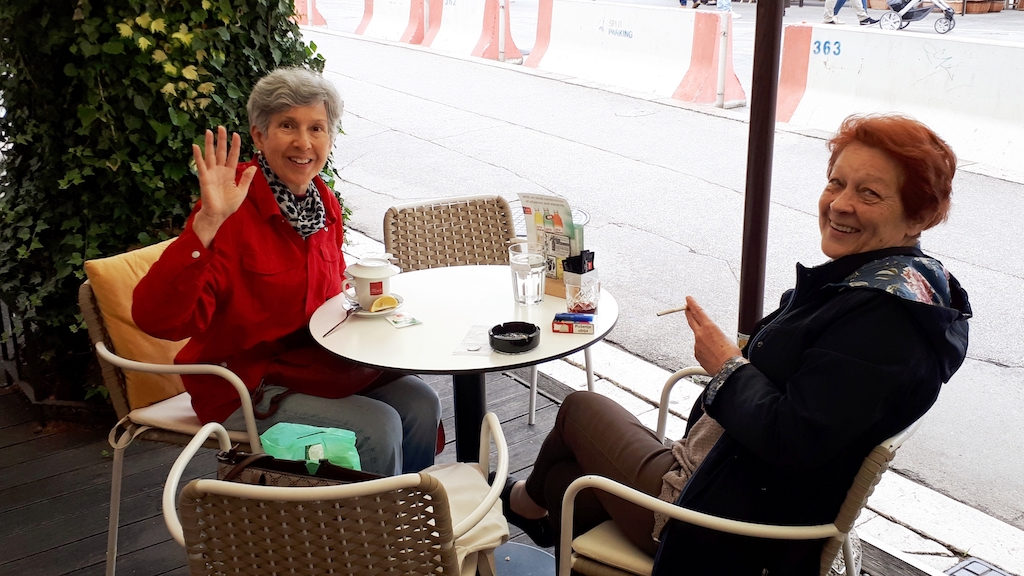
5. And the 3 things you would like to change.
Change…maybe you’re driving and parking issues. I don’t have a vehicle; I love to walk or take your great bus system. HOWEVER, the way most drivers view the roads, is scary!!!! Also, since I am a health-focused individual…I am worried that I see so much processed food in the younger folks shopping carts. That dwindling effort in the kitchen, is what has led to the decline in the average person’s health in the US. Your raw materials are soooooo good, I consider it a crime to not cook from scratch, here.
Also, folks with the dogs, NOT PICKING UP THE POOP! Total health hazard!!!
6. Given your experiences, what advice would you give to any would-be expat thinking of making the move?
Patience! Most of the elderly have only one speed. Polako!!!!
Also, folks stop, dead in the middle of the walking path, so never assume the person in front of you, won’t stop dead in their tracks, for some reason.
I have to say, my husband was on the computer to fb “ex-Pats meet Split” and other government sites, for 6 months, daily doing all the research we needed to get here. Since he was born here, things went fast with paperwork. So, if you don’t have a “Cro-Connection”, I am not up on what the options are. DO YOUR HOMEWORK, and double & triple check your information.
7. The most beautiful place in Croatia, and why?
I personally feel Split has the most to offer. I have been to Osijek, Rijeka also. So, while I haven’t been everywhere, I feel the weather here is the friendliest to outside use, year-round. I totally need to see the sun, almost daily. And I get the grumps, just like the locals, when we reach that third day of rain/clouds in a row! So, I am so right there, with that issue!
8. Your favourite moment of your time in Croatia?
My most favorite moment, still is the trip Ivan & I took to Omiš and the castle in 2018. When we got to the top and surveyed all the mountains, sea around us…I truly felt like I could fly. I took some killer pics, and to this day, it brings back that wonderful day, with my husband of 45 years.
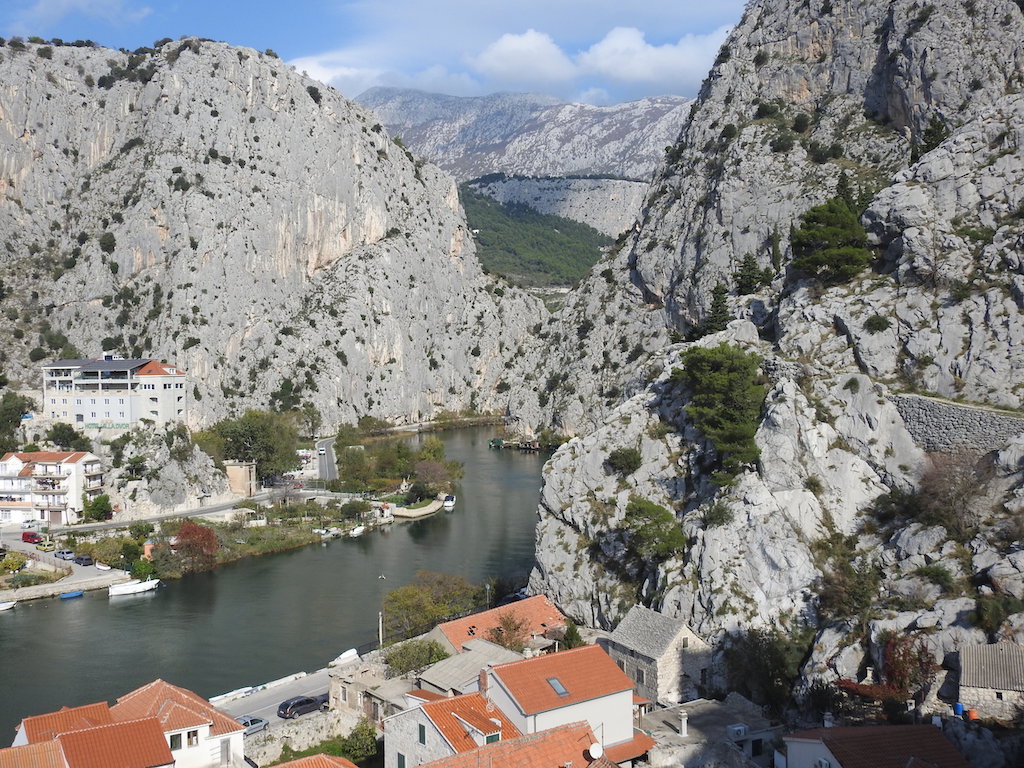
He left for a head start on a new journey, after a sudden health event. We had 3 stupendous years together & his deepest wish was for me to become a “Splitska” (sp?) I will apply for my permanent residency later this year, and will continue on my journey to fulfill that wish, God Willing. Carla M. Nemet
Are you an expat who would like to be featured in this series? If yes, please contact This email address is being protected from spambots. You need JavaScript enabled to view it. Subject Expat
For more, make sure to check out our dedicated lifestyle section.
Choosing Between Living in Zagreb or Dalmatia, Two Years Later
December 16, 2021 - After getting to know the capital of Croatia better this year, I was already imagining my life in Zagreb. However, one has to think twice before leaving Dalmatia behind so easily.
Seven months in Rijeka, and eight in Podstrana, which is located about 20 minutes south of Split. That is the time that, until March of this year, I had spent in Croatia since I arrived for the first time in October 2019. At that time I felt an urge to get to know the country beyond the coast, and Osijek was my main choice. Unfortunately, things did not work out for me to move to Slavonia, and my next destination would be Zagreb.
The impact of Zagreb on me was immediate. Parks everywhere, such a walkable city, a great public transport system, things to do everywhere and at all times, movement, life, great food... Zagreb has it all. One of the reasons why I went to Zagreb was to find a job, and this was the case in my second week there. I interpreted it as a sign to realize that my place was there, in the capital of Croatia.
A short video that I recorded and edited on the way from Split to Zagreb, with an emphasis on the landscapes between the two cities.
I would have liked to continue this article by saying that, after a few months, I managed to settle in Zagreb. But one thing led to another, and I ended up in Split after four months. Some will believe that because it was summer the decision was a bit obvious, but at some point, I really saw it possible to spend those hot months away from the coast. In July I returned to help my parents with our accommodation business during the season, and I was not yet financially ready to pay rent. In Zagreb, I was residing in student accommodation thanks to a scholarship, so that made it easy for me to live there.
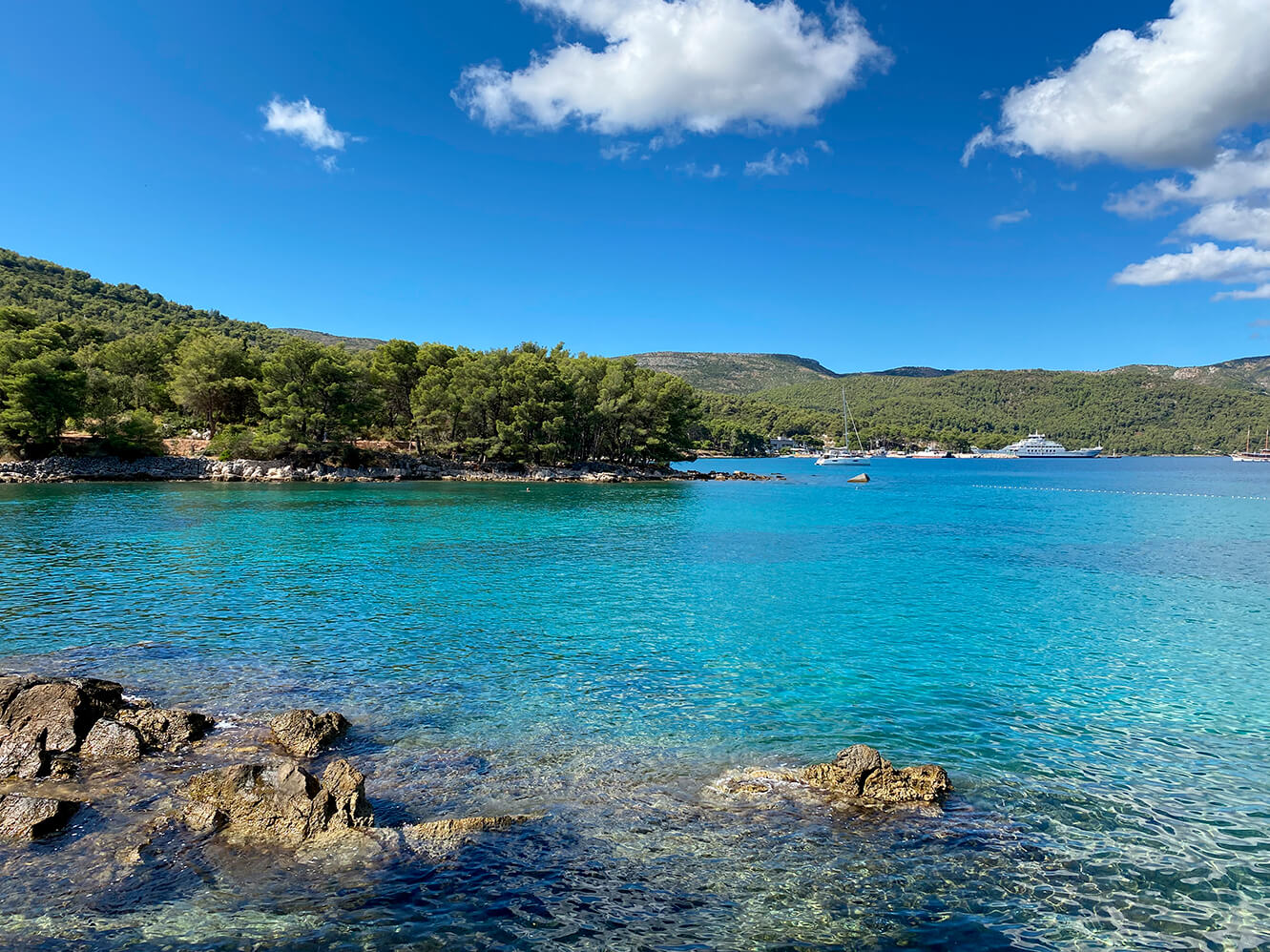
The view from Lanterna Beach, between the town and the ferry port of Stari Grad, on the island of Hvar. Heaven on earth. (Photo: Jose Alfonso Cussianovich)
I cannot say that I returned with sadness in my soul - the summer was spectacular, and for me, it is always special to be close to my family. The job I have allowed me to work in any corner of the country, so it wasn’t a big deal to move again. The reception of dozens of tourists who arrived during the season and the several beach days made summer go by very quickly for me. In the blink of an eye, it was already September. The climate in Dalmatia was the same or even more pleasant than in the previous months. I was aware that summer 2021 was slowly disappearing, but beach days, ice-cold beers, and air conditioning were still part of the routine. I still remember with great happiness the visit of my cousins, with whom we visited one of my favorite places - Stari Grad, on the island of Hvar. September was indeed a special month.
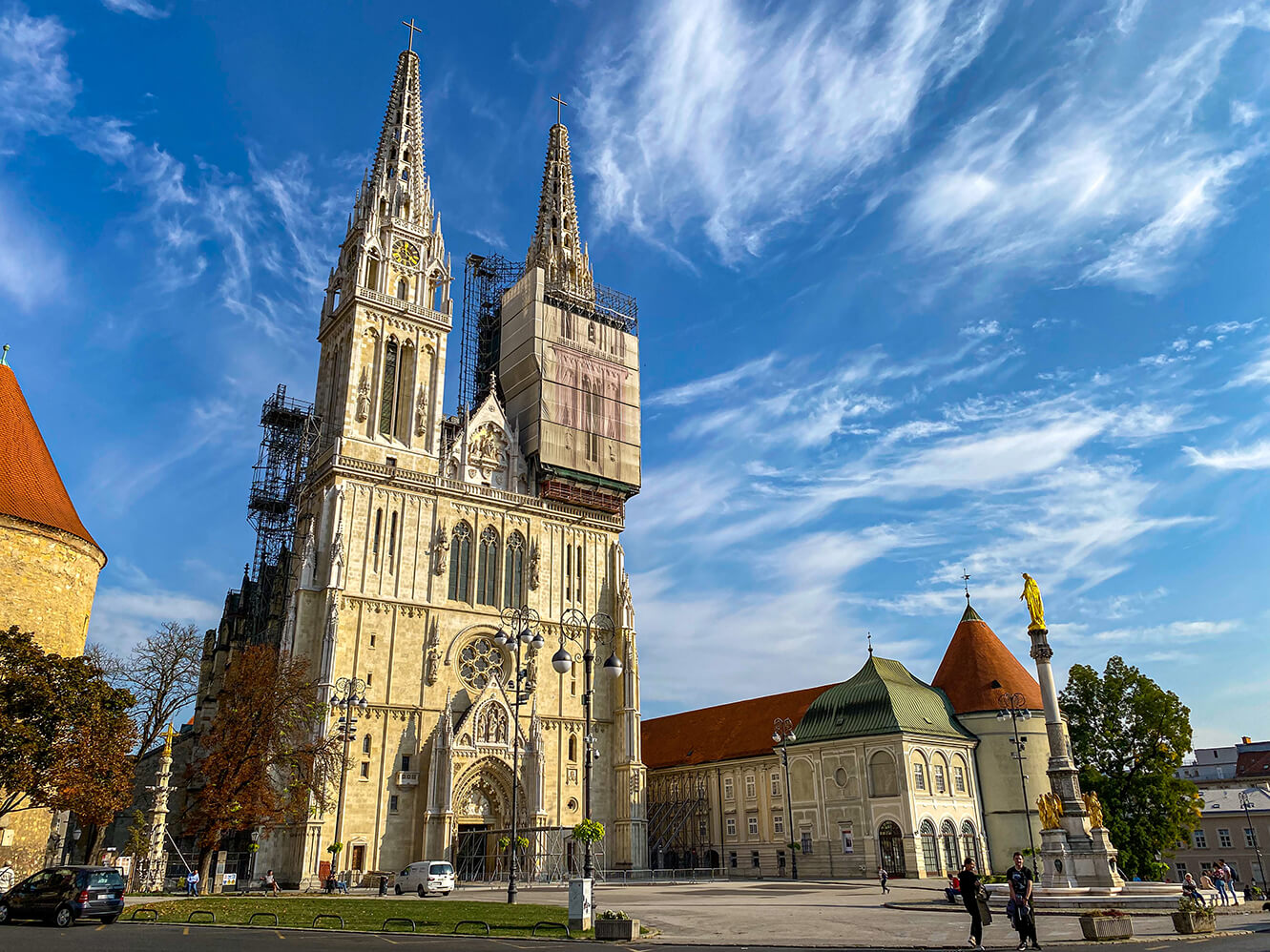
Zagreb Cathedral, when I visited the capital of Croatia in early October. (Photo: Jose Alfonso Cussianovich)
October came, and I noticed the changes when I made a short trip to Zagreb. The colors of the forests that accompany the E65 and E71 roads changed from strong green to reddish. The week I was in Zagreb, earlier that month, reminded me how much I missed the things I liked about it. That's when I said that, as a goal, I would come back at least once a month even if it's just to visit.
Shortly after that brief stay, I managed to convince my parents to go back together to spend a few days in the capital. We stayed around the corner from the Cathedral, and we really had a great time in those few days.
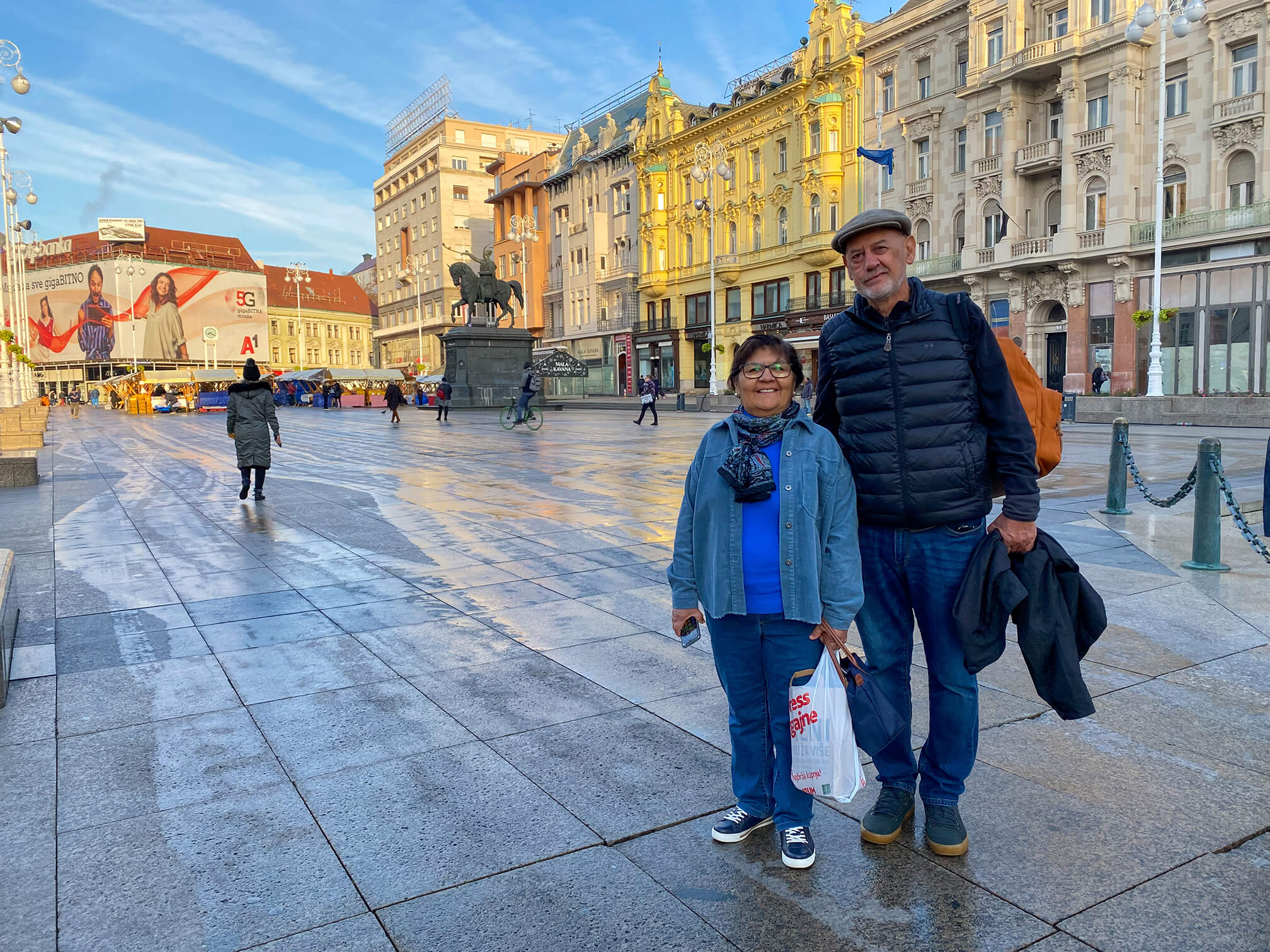
My parents, in Ban Josip Jelačić square on our little trip to Zagreb in October. (Photo: Jose Alfonso Cussianovich)
My next visit would be last week when it was time to celebrate TCN's Christmas dinner. It was the first time I went to Zagreb with a pre-winter ambiance. Despite the cold weather, I have never seen a city as lively and vibrant as Zagreb is in Advent. I kept reminding myself of the many benefits that living in Zagreb entails, which even go beyond the lifestyle, such as the efficiency of public institutions or the ease of meeting new and valuable people even in such everyday situations.
Zrinjevac Park in Zagreb, during Advent. (Photo: Jose Alfonso Cussianovich)
By then, I was already thinking about the cost of living there and it even occurred to me to try to convince my parents that living in Zagreb and running our business in Split at the same time was a very feasible alternative.
But it was time to return to Split, and in less than a week, I reconsidered everything I had been thinking throughout this year about living in Zagreb. Five things made me change my mind.
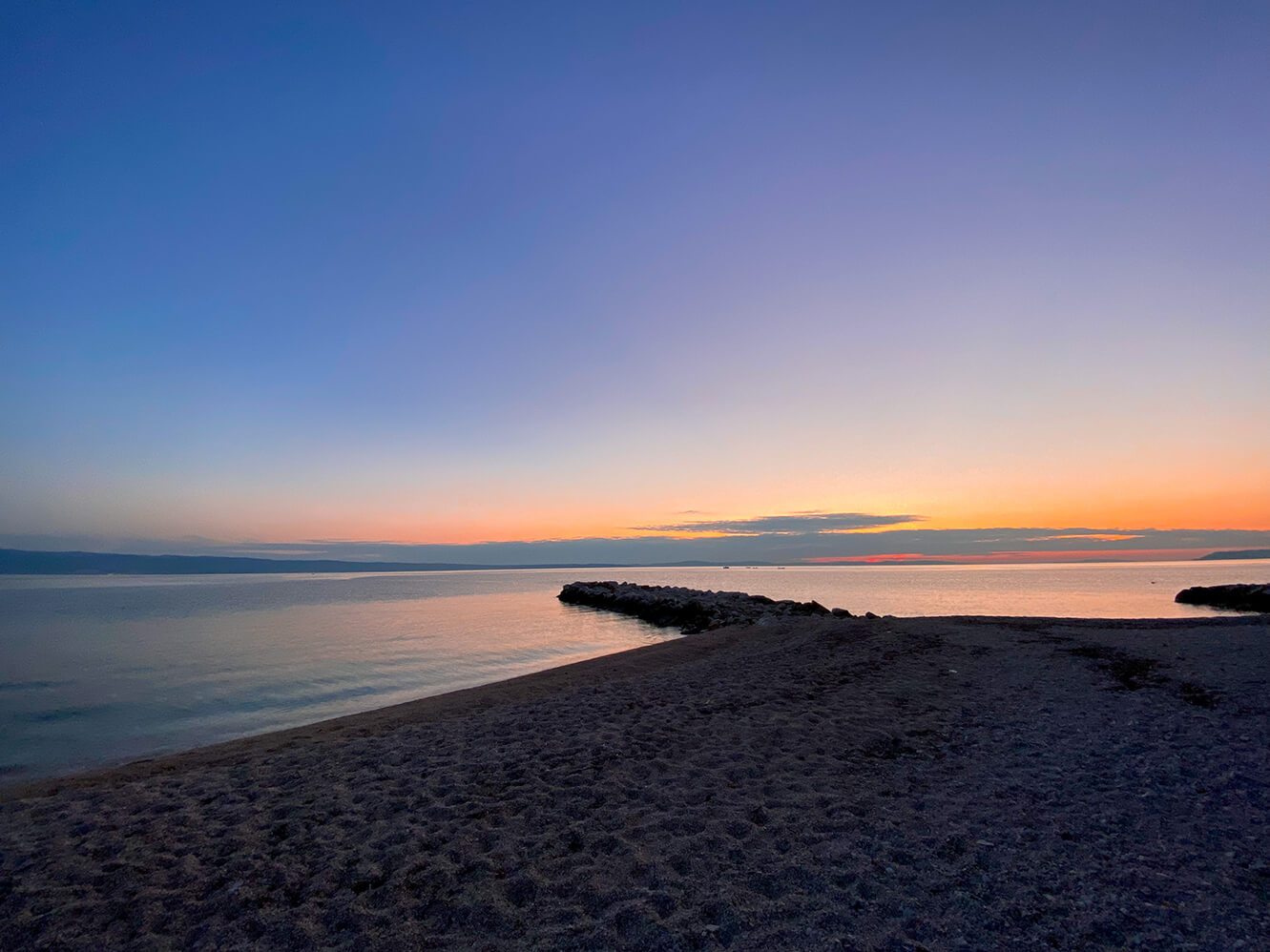
One of the many scenes that one can find when walking along the beaches of Podstrana. In this case, between sv. Martin and the Le Meridien Lav hotel. (Photo: Jose Alfonso Cussianovich)
First of all, I decided to walk along the beaches of Podstrana, from Saint Martin to the Le Meridien Lav hotel, during sunset. It is definitely not the ideal time to take a dip in the sea, but just being close to the Adriatic Sea is more than enough for me and I couldn't afford to be so far from the sea. This almost spiritual walk has been crucial for me to think things over.
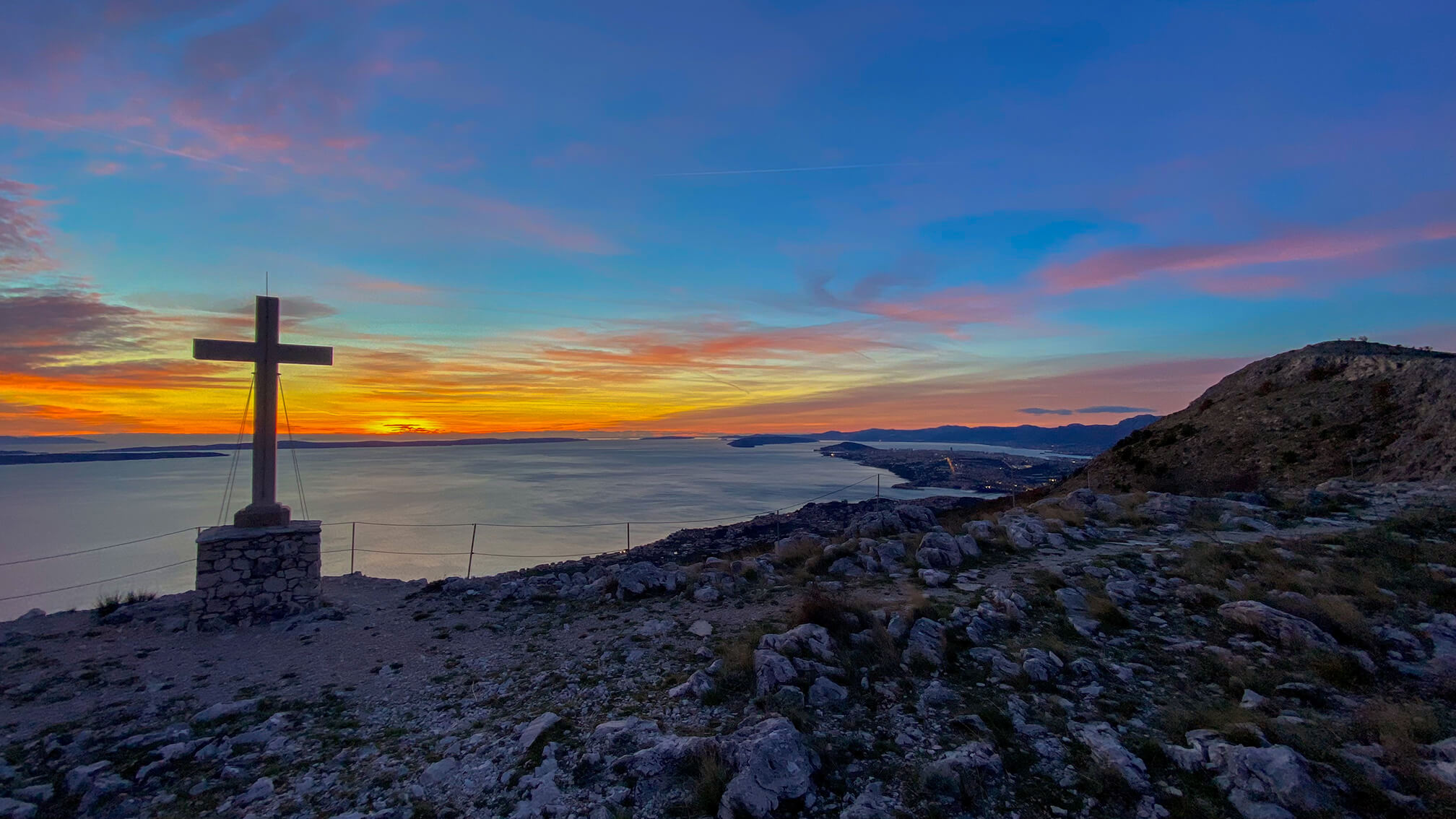
The view from the mountain, in Podstrana, next to the church of sv. Juraj. Below right, you can see the city of Split. (Photo: Jose Alfonso Cussianovich)
Secondly, the little hikes I made to the upper part of Podstrana these last two days, both on a small hill behind my house and on the mountain where the small church of St. Juraj is located. In recent weeks, gray skies, cold weather, and storms prevailed. But when I returned from Zagreb, I found sunny days, warmer weather, and stunning sunsets. The images I captured of these last two days, both in photo and video, speak for themselves. Never in my life have I witnessed such spectacular views, and that’s not an overstatement.
A short video that I recorded and edited in Podstrana, where I live, between December 14th and 15th. The sunsets were spectacular.
Third, the Split Winter Tourism roundtable. I had the great opportunity to be present at the previous meetings and at the great event held at Chops Grill on Monday. Although my role was quite minimal, the important thing for me was being able to listen to many of the people who in recent years have moved mountains to make Split a twelve-month destination and those who could finally make it happen. Self-criticism, ideas, potential collaborations, their will... all this helped me to think that the future in Split can only be better, especially if intentions and actions go hand in hand this time. It excites me to think that, with the skills and ideas that I have, I can be part of that change, in some way.
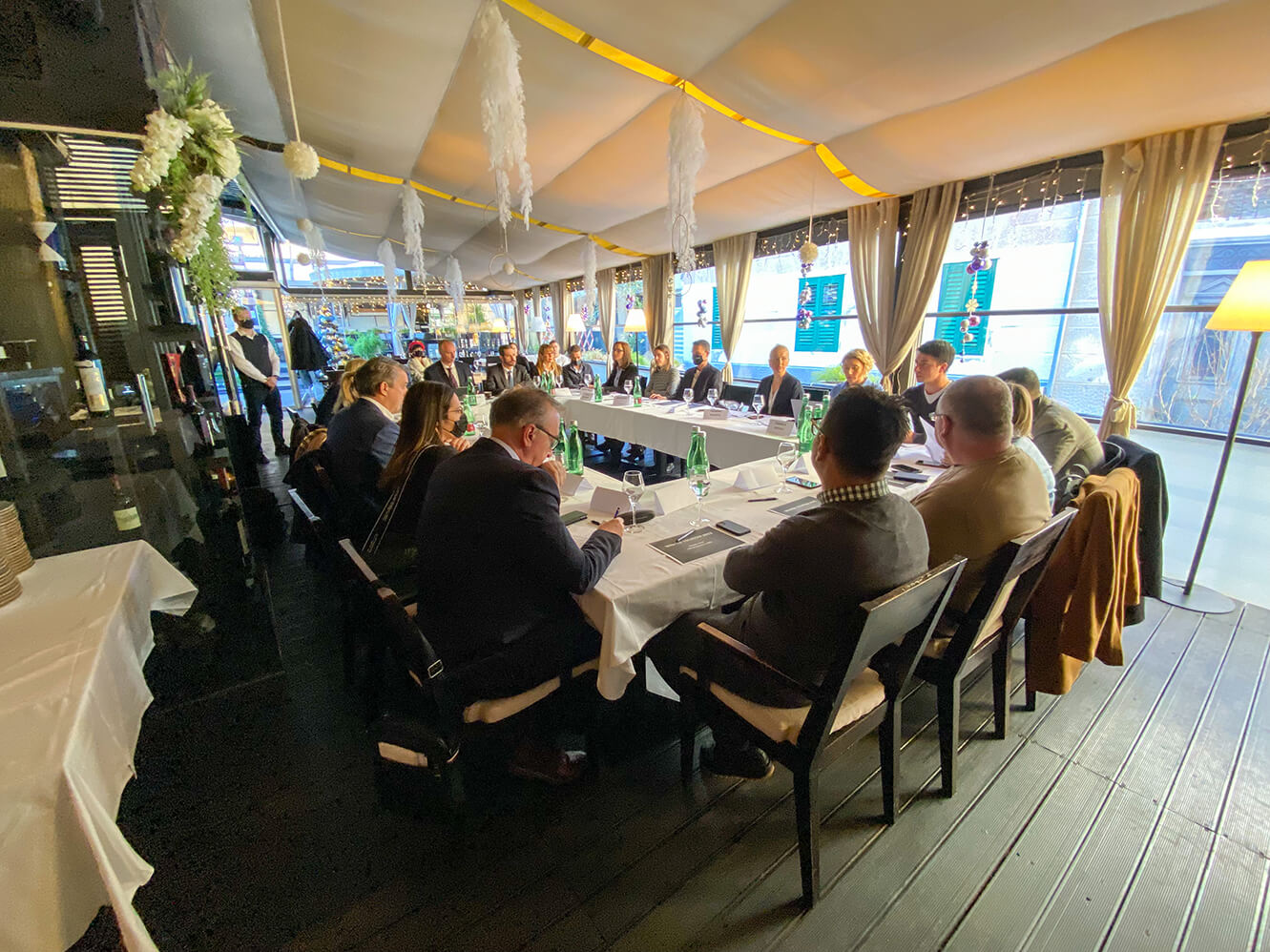
The Split Winter Tourism Roundtable, which was held at Chops Grill on Monday. (Photo: Jose Alfonso Cussianovich)
Fourth, and you probably think that I let it slip when I remembered October: the olive trees. "Who in his right mind chooses one place for another, just for the olive trees?", you might ask yourselves. It is not so much for the trees themselves, but for the experience. I was aware that the olive harvest season began in mid-October, and after missing the opportunity to see it up close at the Olive Picking Competition on the island of Brač, I decided to be more attentive to the slightest chance to live that experience.
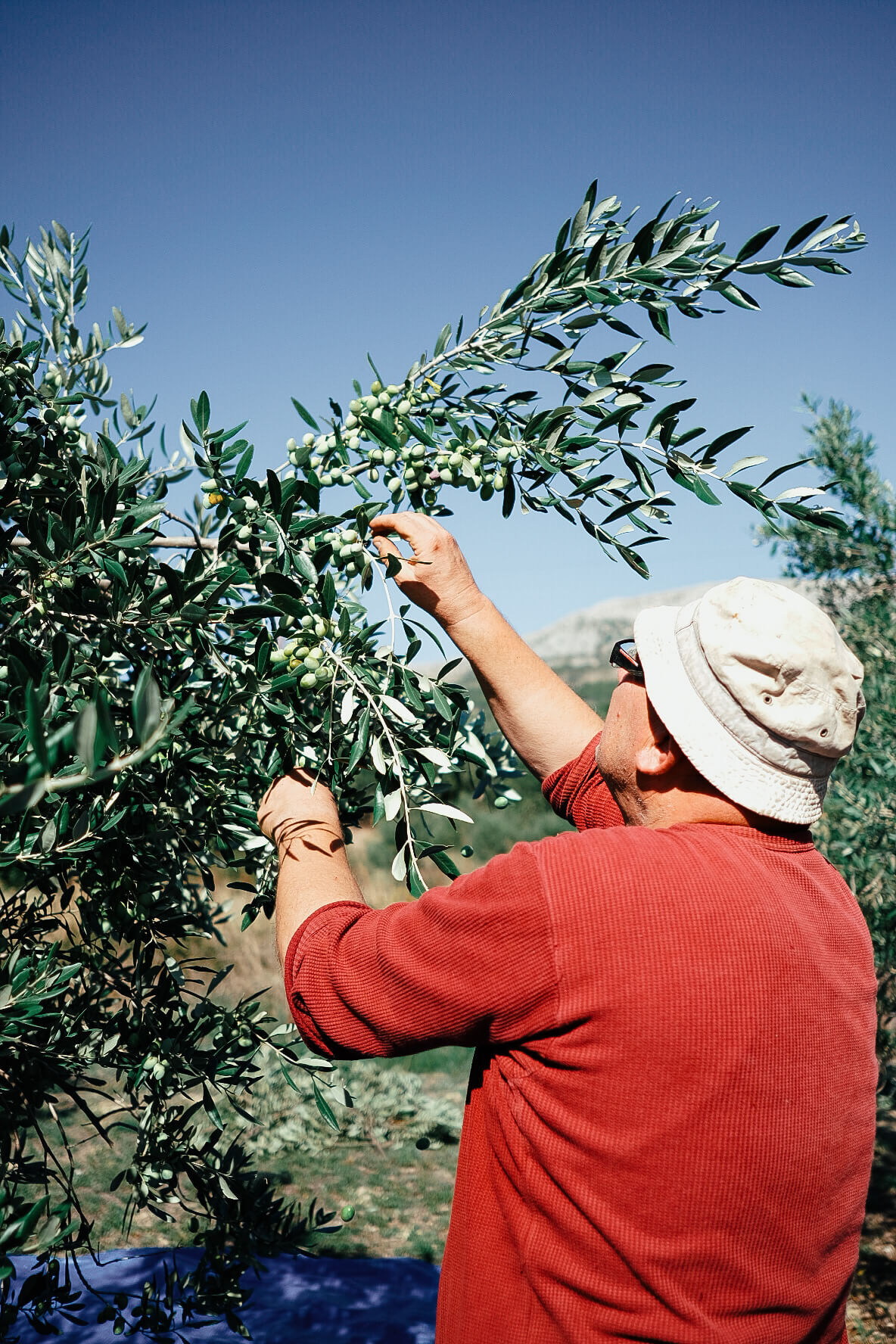
One of the photos I took while accompanying some neighbors from my neighborhood while picking olives from their trees. (Photo: Jose Alfonso Cussianovich)
Fortunately, behind the building I live in, there are many olive trees. For several days I looked to see if someone was coming to collect the olives, and indeed one day it happened. Without thinking twice, I walked there with my camera and asked a family of three if I could take some photos of them and record some videos while they picked the olives. What at first seemed like a journalistic task, turned into a very friendly afternoon in which we shared stories, and especially the father, who told me for hours everything I should know about a tradition as ancient as collecting olives. You know that as you go up the highway towards the mainland, the olive trees begin to disappear. You probably think it's a bit of a silly reason, but I just don't see myself living far from these kinds of experiences. Truth be told, one of my dreams is to have my own olive tree and make my own olive oil. So there you have it.
Last, and maybe most importantly, my Croatian ancestor, Pero Kusijanović, was born in the small district of Mokošica, in Dubrovnik and was, by all means, a true Dalmatian. Pero migrated to Peru approximately 150 years ago, and I don't think he would have ever imagined that his descendants would choose to return and settle in Zagreb, far from the Adriatic. I will honor him, in some way, trying to move my future forward here in Dalmatia.
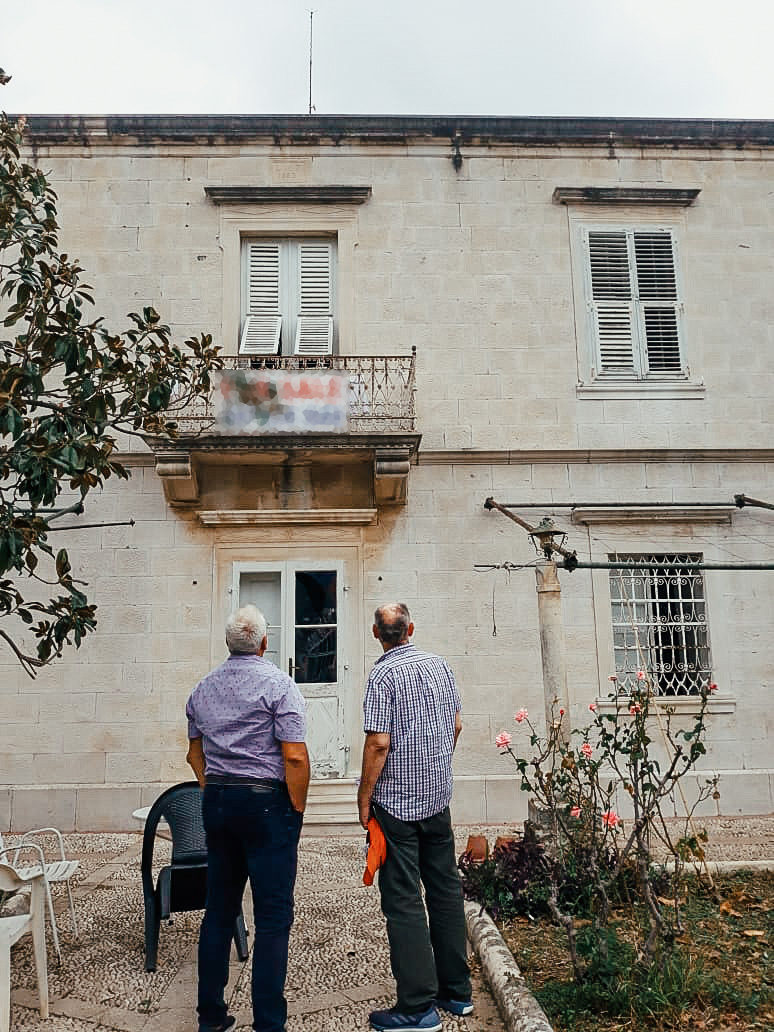
My father (right) visited the house in Mokošica, where our ancestor, Pero Kusijanović, was born and raised. (Photo: Patricia Medina)
I will never regret the experiences and moments lived anywhere other than here. If something makes a country like Croatia special, it is that each of its square kilometers has something prepared for you, and capable of marking you for life. But I do have to admit that there have been times when I underestimated the beauty of living in Dalmatia, and for that, I apologize. Sometimes you don't have to make pros and cons lists to compare one place to another. Sometimes the region has a vibe that is difficult for others to feel or understand, as the great Daniela Rogulj would say.
Many believe that Dalmatia is only the islands and the coast (which alone are good reasons to settle here), but many are unaware of the history and beauty of places Knin or Sinj, the latter I was able to visit at the end of October with my family and really blew me away.
Split, Zadar, Dubrovnik, Šibenik, Ston, Trogir, Korčula, Hvar, Knin, Sinj, Primošten, Omiš, Makarska... how can you forget about these places and many others with such ease? Sometimes it is about what a place already is, and sometimes what a place can become. For the moment, I choose the latter. There’s so much for me to discover here before jumping to conclusions, or Zagreb.
For more, check out our dedicated travel section.
Good and Bad of Living in Croatia: Reflections 10 Years Later
April 29, 2021 - TCN contributor Valeria Teo reflects on living in Croatia 10 years later.
I have been second-guessing myself for writing about the good and bad of living in Split. There are various online discussions on similar topics. The positive and negative comments from both local and foreign people living and/or leaving Croatia can be antagonistic. But the answers, whether they are good or bad things, are inevitably personal. So the antagonism surprises me even more than the answers themselves. This gets me to think about another irrelevant issue. Can I "complain" to and about my Croatian husband even though I do not want a divorce? I see sufficient goodness in him for us to be together. But he still annoys me on some good days and pisses me off on some really bad ones.
Back to the original question for this piece. I actually do not have better insights or more original ideas than are mentioned elsewhere. The diversity in this country can appeal to people with all sorts of preferences. All I can say is that life in Split suits me at this stage of my life: fewer people, slower pace, better climate, nicer environment, more freedom, less fear ... These are what I call the background factors. We only know we want them when we had the opposite or even none of them. And there are things we have to deal with on a daily basis: money, food, health, work, socialising, parenting, elderly care ... Daily frustration usually comes from these areas. Living in certain bubbles can avoid some of them while certain life stages can bypass the others. As we inevitably attach different weights to the background factors and give our own priority to the daily things, they affect our experiences in Croatia in myriads of ways.
My interactions with Croatia have changed in the last 10 years and so have my experiences of living here. I arrived at an age when it was difficult to find a new job or get a new friend even back home. But modern technologies kept old circles within easy reach. So I rarely found myself frustrated in those early days. Even my residency application was pretty straightforward. Having zero prior knowledge, I could not tell whether a processing time of 2-3 months was considered fast or slow. I hardly complained about MUP as my husband and I just went with their flow. They told me the most important thing I needed to know at that time: I could stay as long as the application was being processed. But we found out later that having the temporary residency approved earlier did make a difference: I had to go to the hospital without Croatian health insurance. We were busy mourning rather than crying over the hospital bill which was not big anyway.
My understanding of the Croatian health system expanded further when my prenatal visits began. That was also the time when the Croatian language bothered me time and again. But my gynecologist was trying his best to take care of me. And I learnt the most important Croatian words in that period: sve u redu. Again, I had had no previous experience in this area to compare with the one I had in Croatia. I was as contented as any woman who has a problem-free pregnancy. Labour, or I should say post-labour, was a bit bumpy and gave me a full-fledged experience of hospitalization in Croatia.
The journey actually started off really sweet as the taxi driver decided to give us a free ride to the hospital. Croatia surprises me many times and especially at a time when I least expect it. The Clinic for Women's Diseases and Obstetrics in its present building was pretty new 9 years ago. My neighbour told me afterward that the facilities were much better than the old one where she had given birth. They were indeed. I did not expect to be put in a semi-private room in a public hospital. Knowing how medical professionals work in public hospitals in Hong Kong, I tried not to bother them unless it was absolutely necessary during my 2-week stay there. I could feel that the language barrier on top of their workload stressed them further. The doctors concluded, after some tests and scans, that bed rest with a tight wrap or girdle around my hips was all I needed. Total recovery indeed came after 3 more weeks of the remedy at home. My friend told me that it was likely to be postpartum pelvic girdle pain. In hindsight, I was kind of optimistic about having my only child here. If I had known about RODA then, I might have prepared better for my pregnancy in Croatia.
The emergency room and other clinics for specialty doctors in Split hospital remind me of the public hospitals in Hong Kong: I once spent half a day in the waiting room for an ophthalmologist to check my eye for less than 10 minutes. It was the same for all the other 3 appointments that followed. Would I like to wait for less time? Absolutely! Did I complain about it? Not really, as I knew how public hospitals worked. When I learn that Hong Kong people moving to the UK have to pay 55 Euro per adult per month for the National Health Service, I have a new appreciation for the Croatian public health system despite the imperfections.
Having a child in Croatia also gets me into the most controversial and stressful sphere in life: parenting. The natural environment and safe space kids can enjoy in Croatia are second to none. That is immensely helpful to parents who stay with their children 24 hours a day. Then comes the most welcomed daily breather for all stay-at-home parents: kindergarten. While Hong Kong parents and pre-schoolers stress and work hard to get ahead, the counterparts in Croatia relax and enjoy their carefree days. Is the Croatian way a good thing? For me it is. But like everything else related to parenting, the answer really depends on whom you ask.
Opinions only get more diversified when children begin schooling. I have listened to my friends, living in different cities, talking about the good and bad of public schools, private schools, international schools... you name it. Parents in Croatia are no exception, I guess. So the conclusion is pretty simple: no school is perfect for any parent. My parents probably thought that I was in the best available schools in our neighbourhood at that time. But none of them taught me how to live in Croatia (there was only Yugoslavia anyway). I am pretty certain that no schoolwork could have prepared us for what has been happening since the pandemic started. Did schooling help me at any stage of my life? Definitely, but little has to do with the textbooks I read or the tests/examinations I passed. The ways I treat schools as a parent are very similar to how I handle life in Croatia: take full advantage of the good bits to help my son develop and get by with the "bad" parts to satisfy the institution.
One thing I like the most about schooling in Croatia is that children do have spare time. Besides enjoying their own leisure, children can explore and pursue many different activities and sports without breaking their parents' banks.
An article about the good and bad of living in Croatia cannot be complete without talking about the bureaucracy and paperwork. I have had my fair share of them after getting my residency and citizenship, buying and renovating an apartment, opening a Croatian company, and getting the required permits. In my experience, it always feels the worst in the preparatory stage. It is more about finishing one task after another once the process gets started. When I focus on the task(s) at hand without thinking too much about anything else, all the applications and procedures are hardly enjoyable but bearable.
I must also say that Croatia has come quite a long way in the last 10 years: more online services, better English websites, all kinds of English-speaking service providers, and numerous expatriate-local communities all over the country. Is it a good thing that Croatia is becoming more international and making life easier for foreigners? Everyone's opinions are different. Coming from a once international city and finding my home here as a foreigner, I only have one obvious answer.
For more about lifestyle in Croatia, follow TCN's dedicated page.


